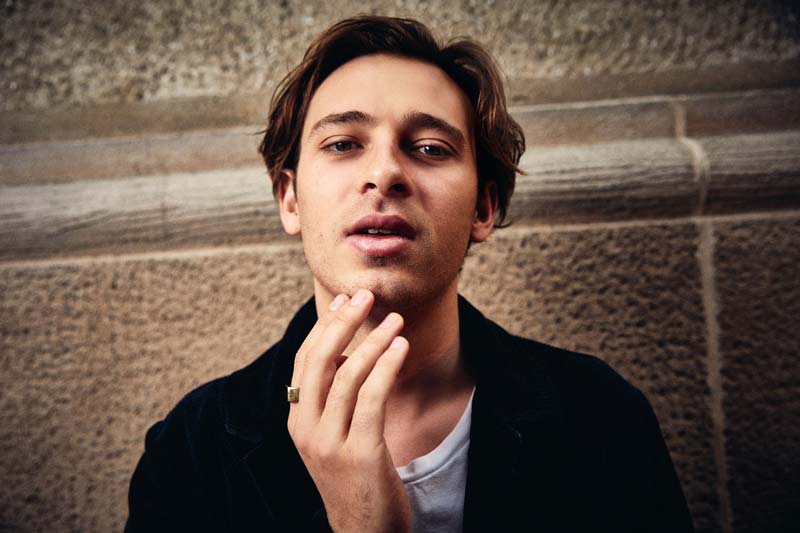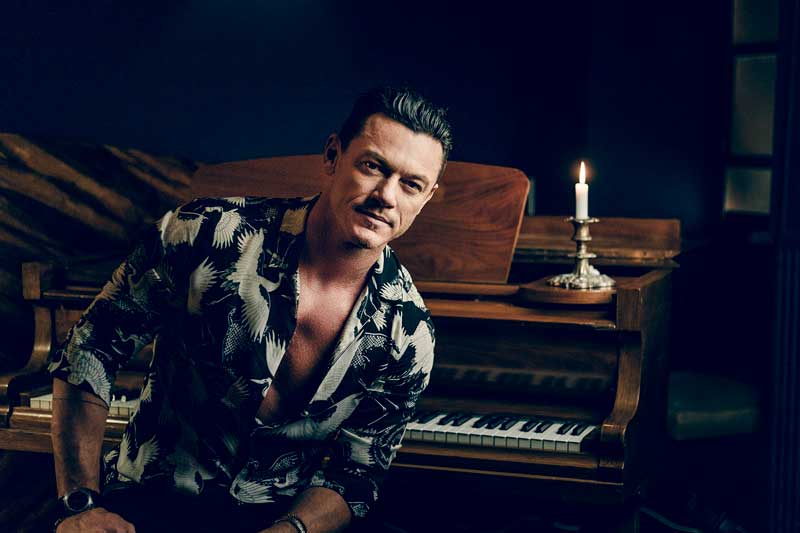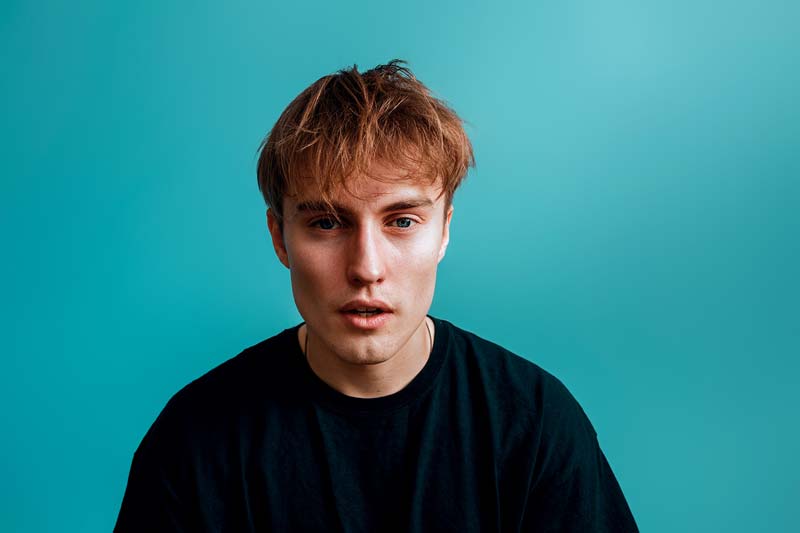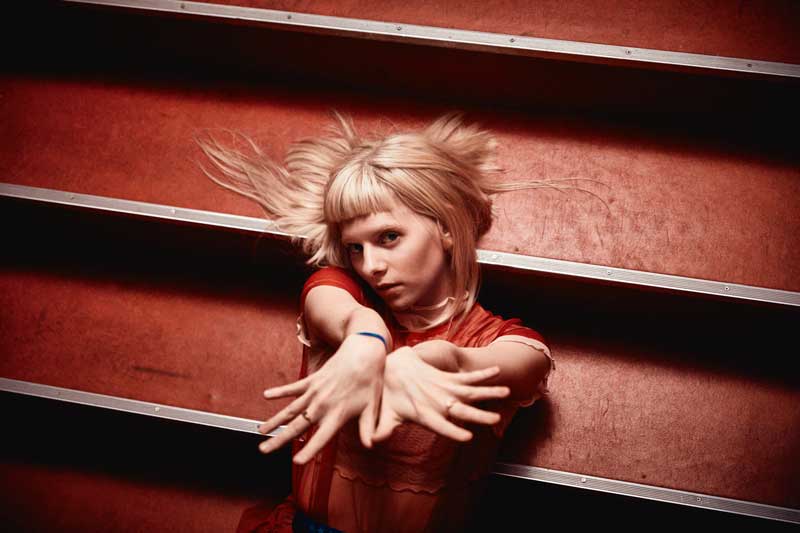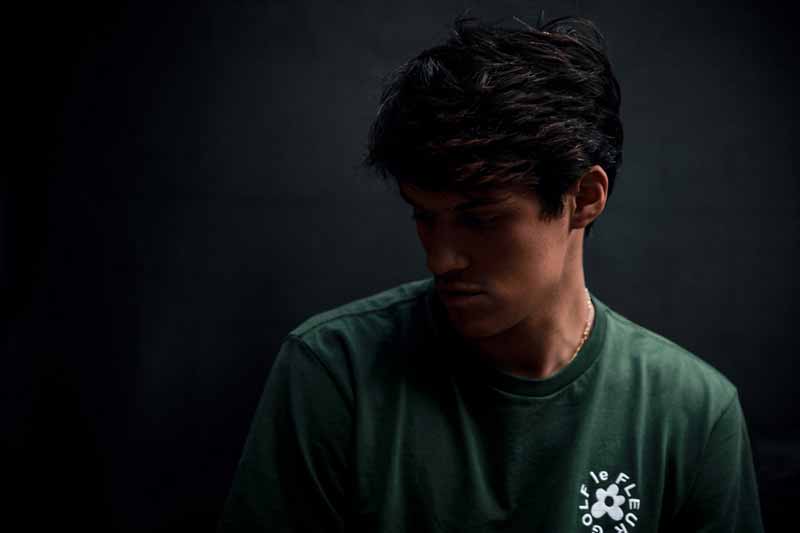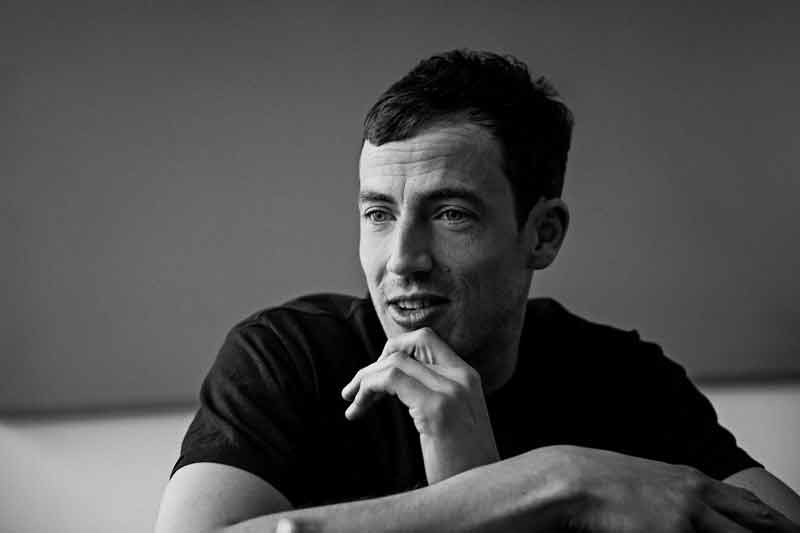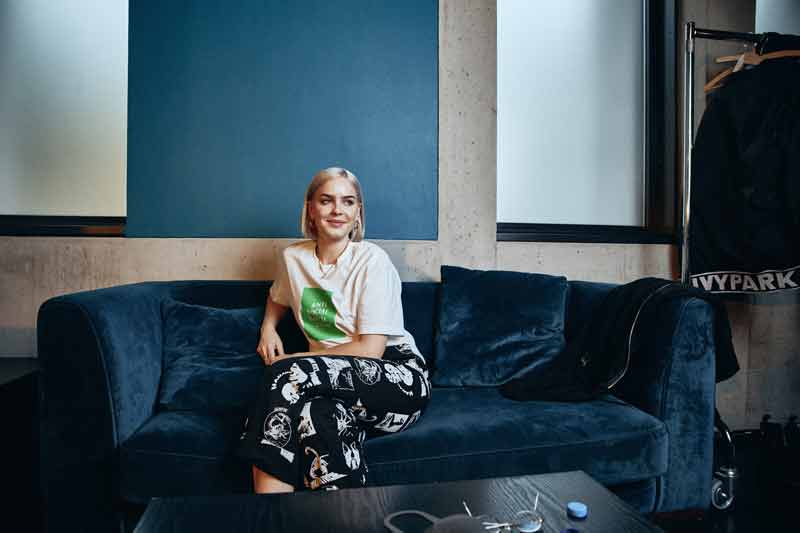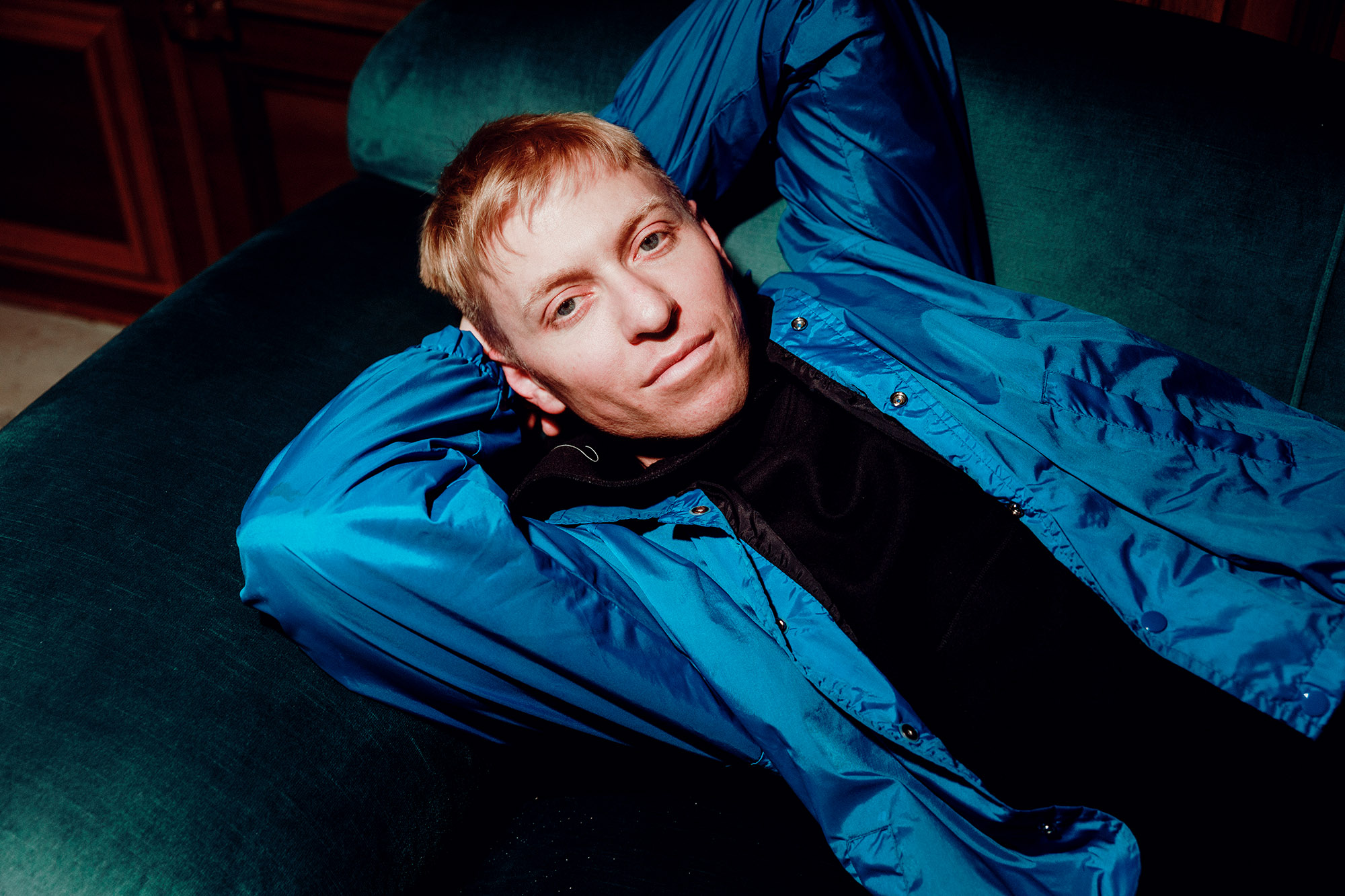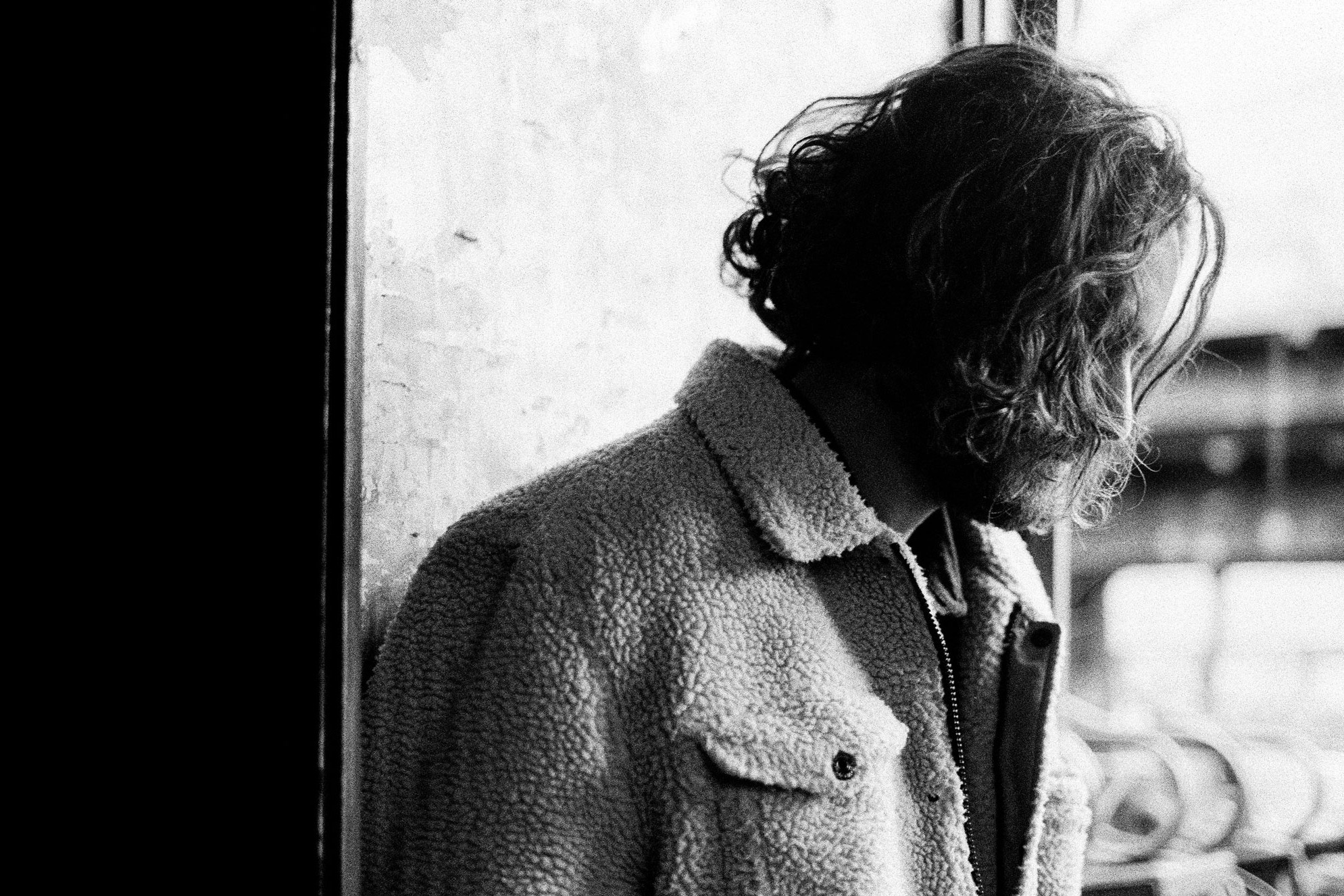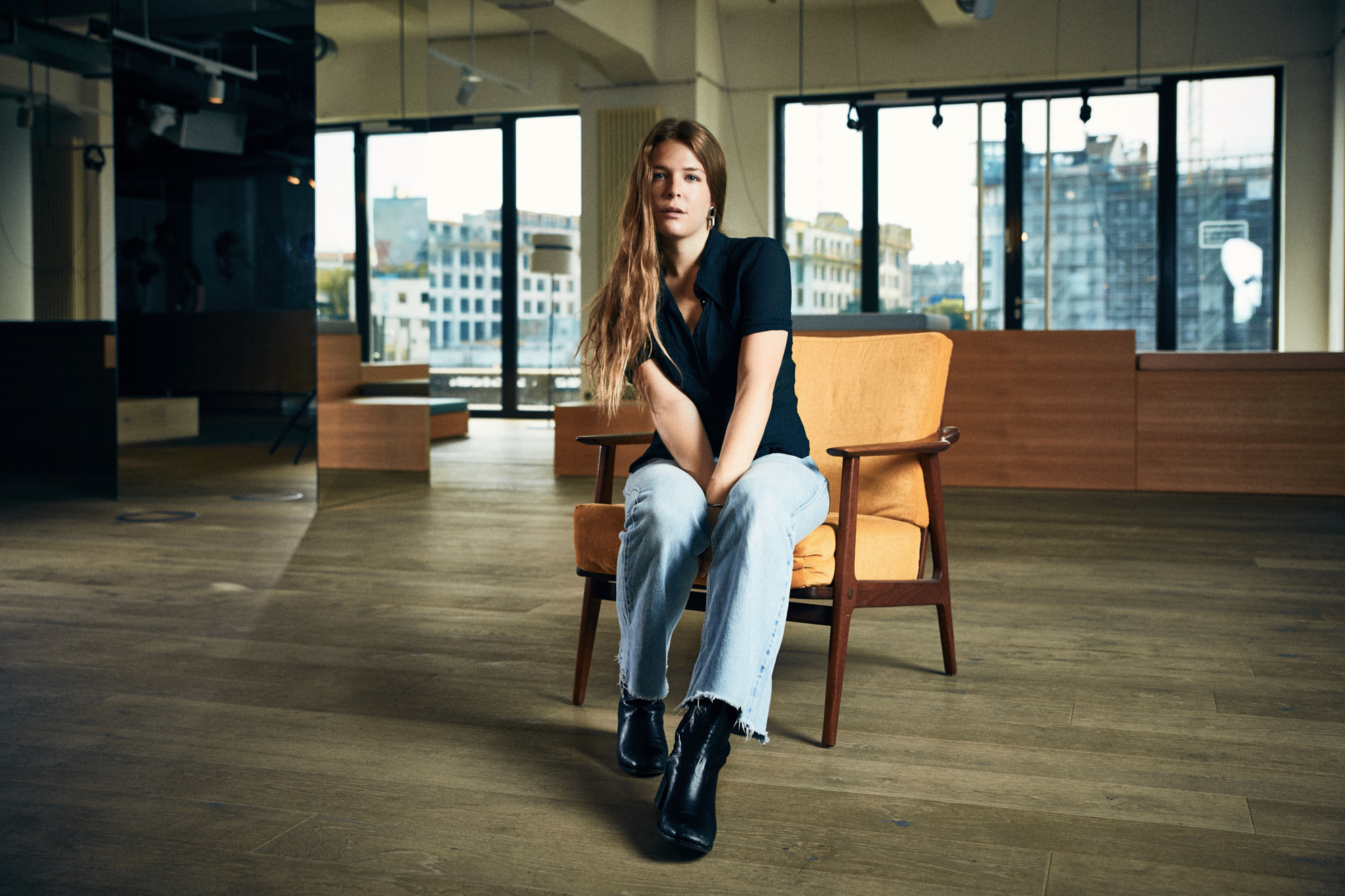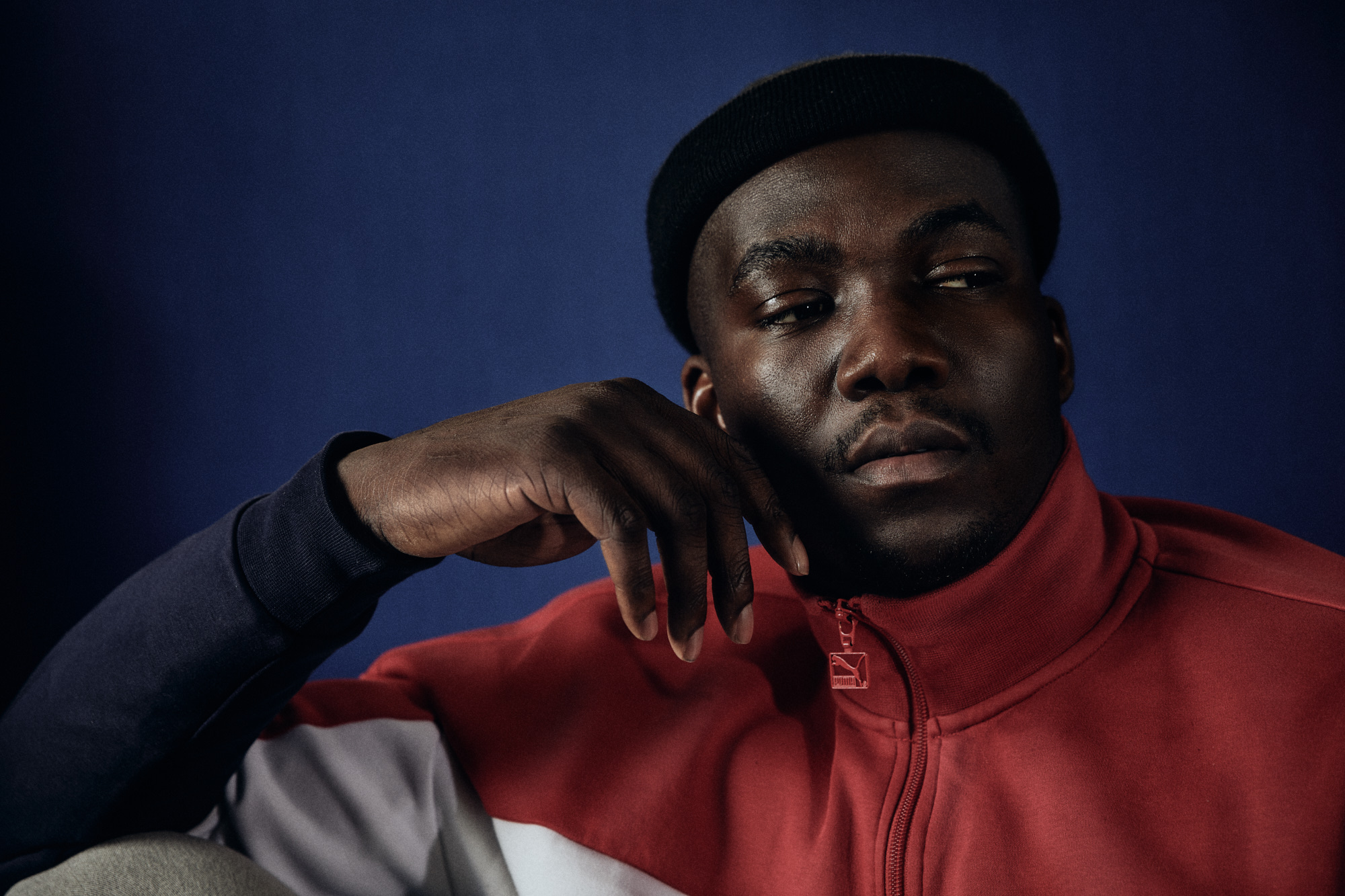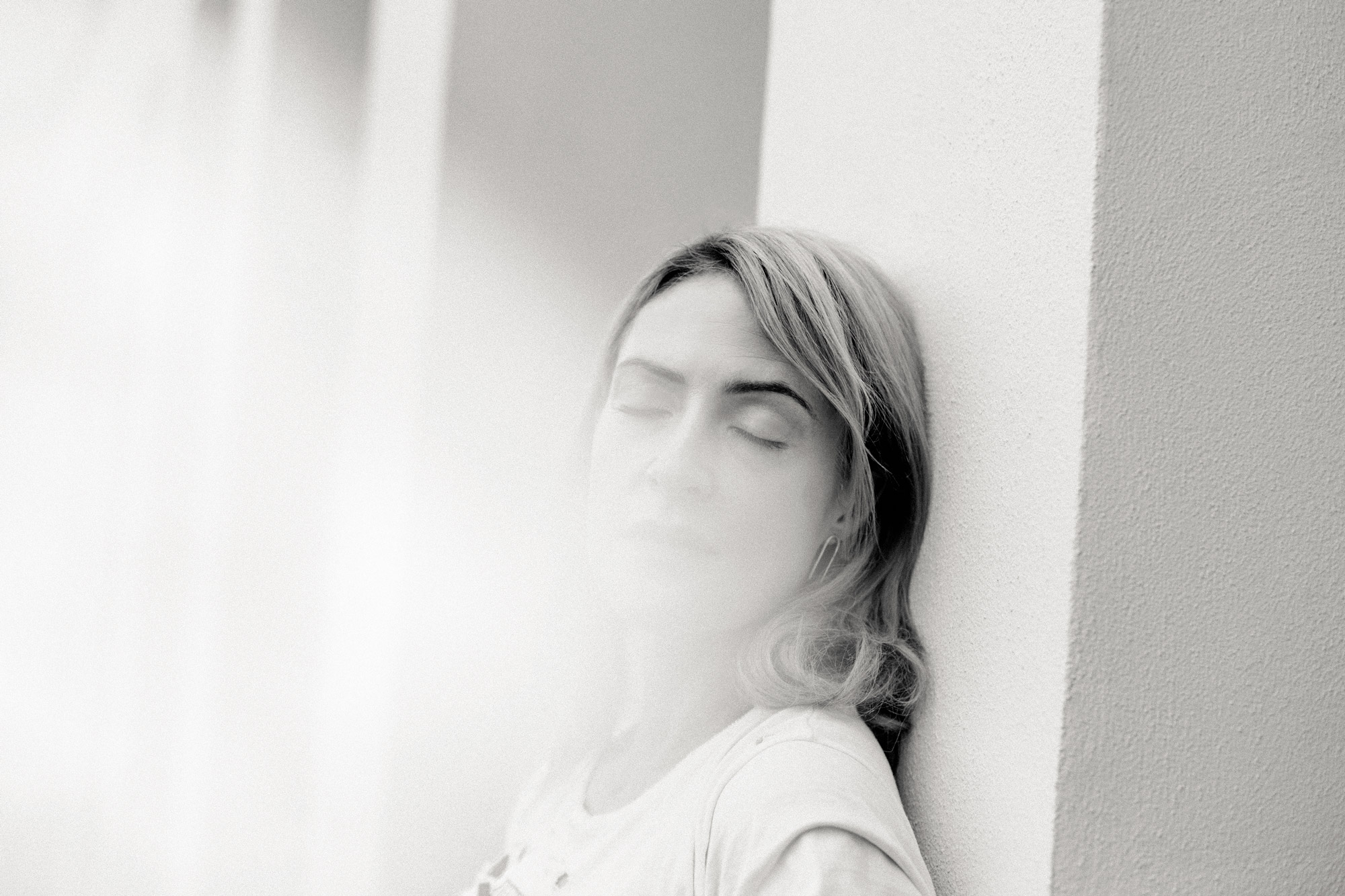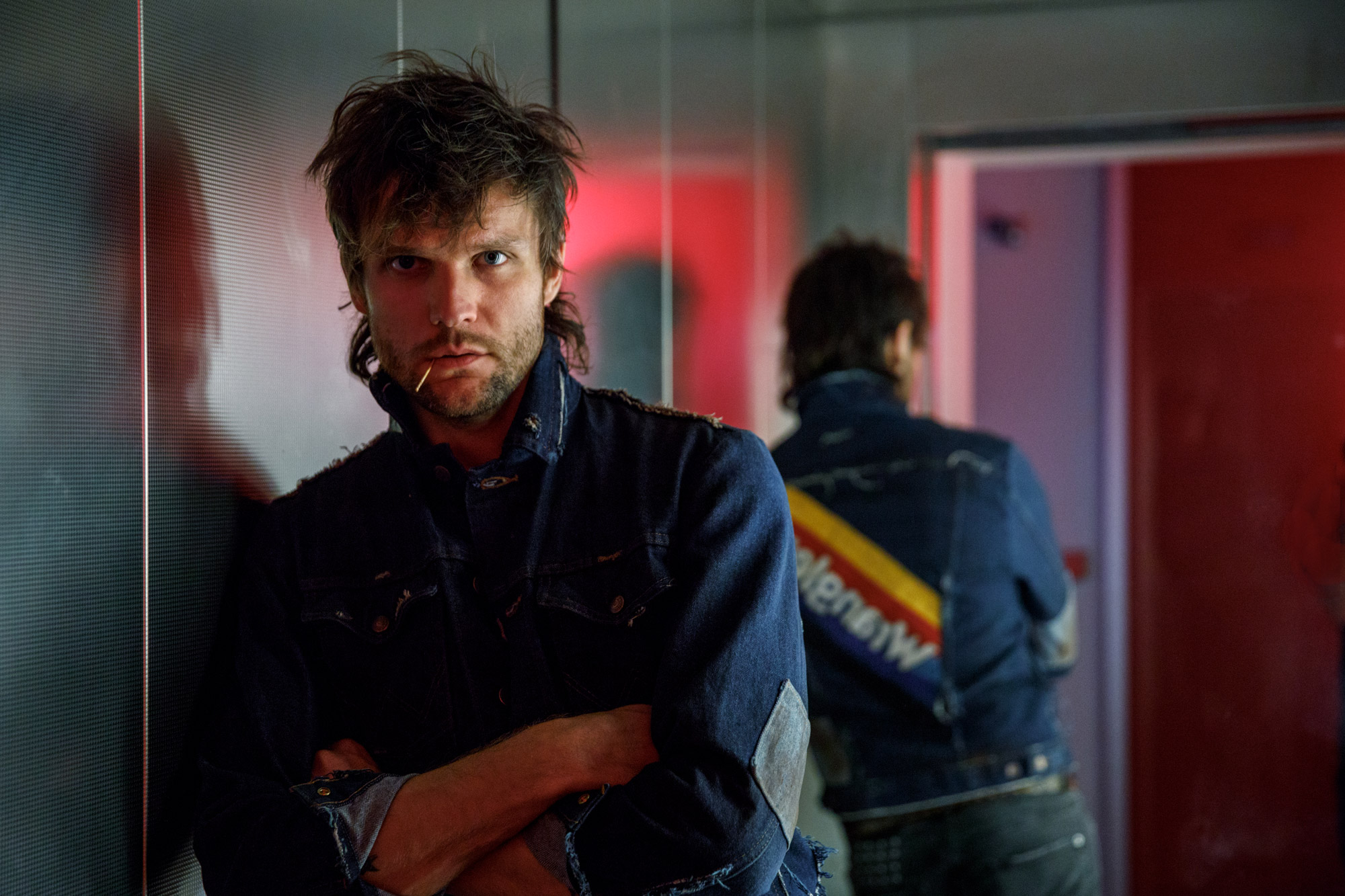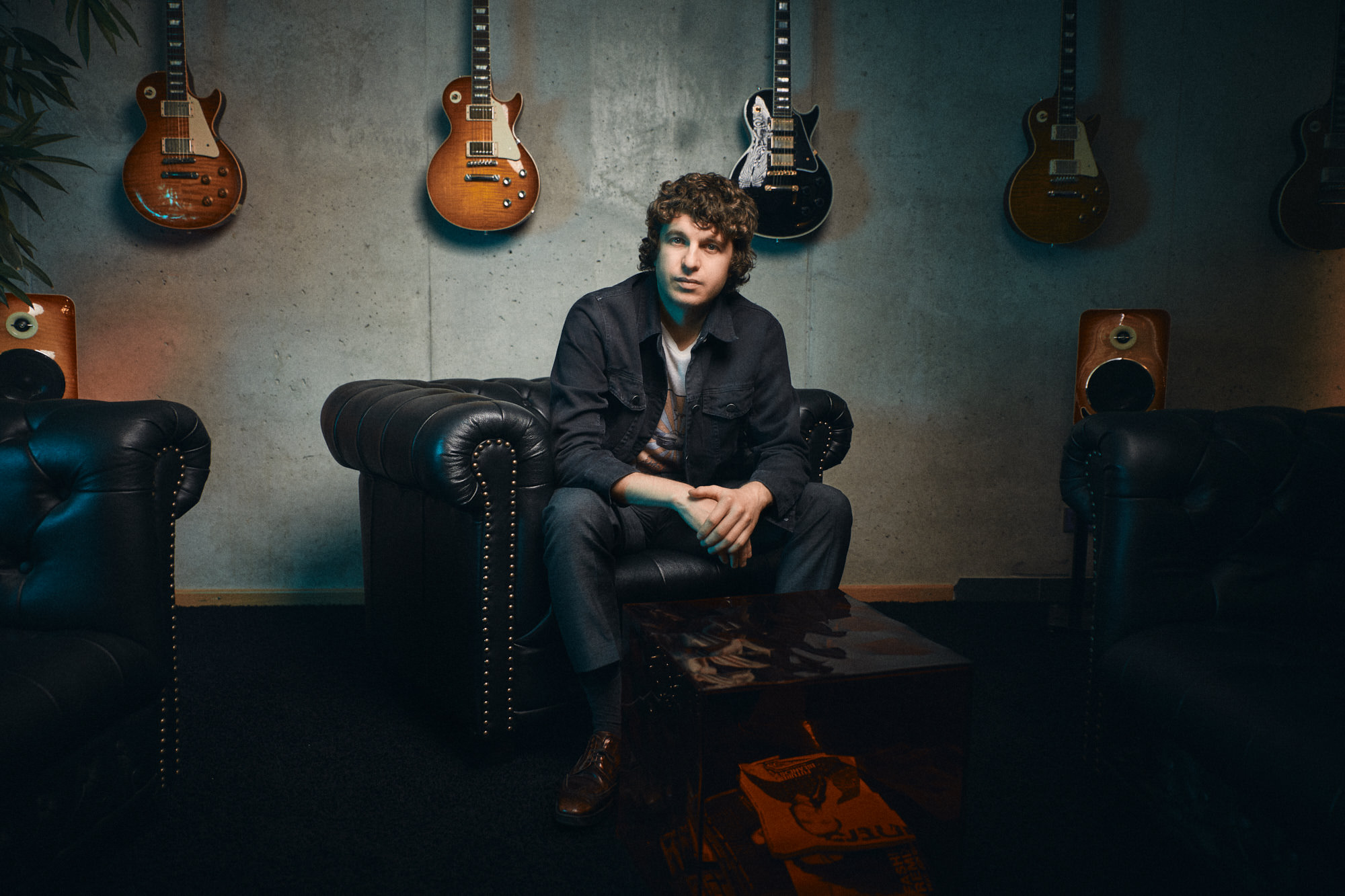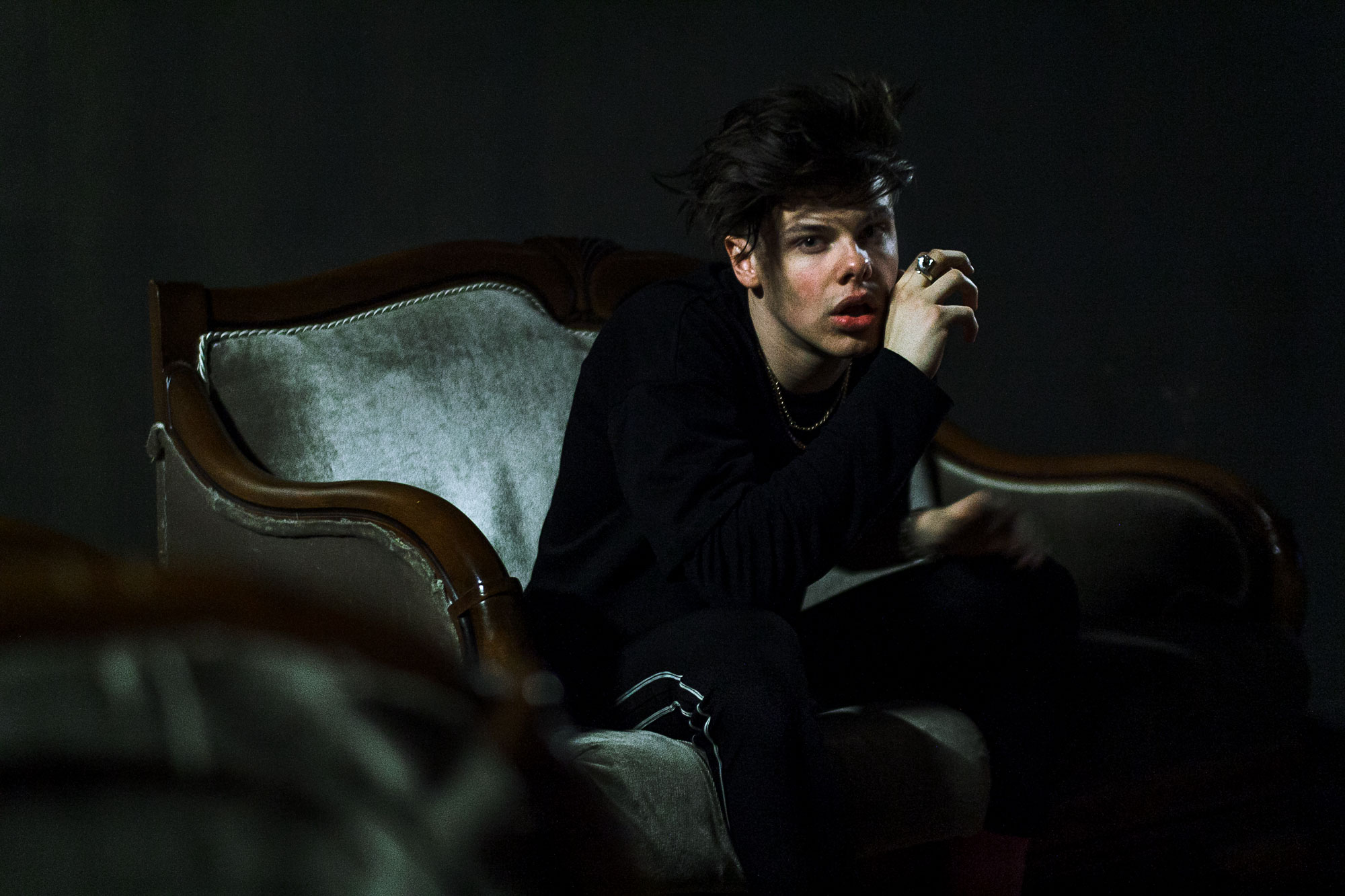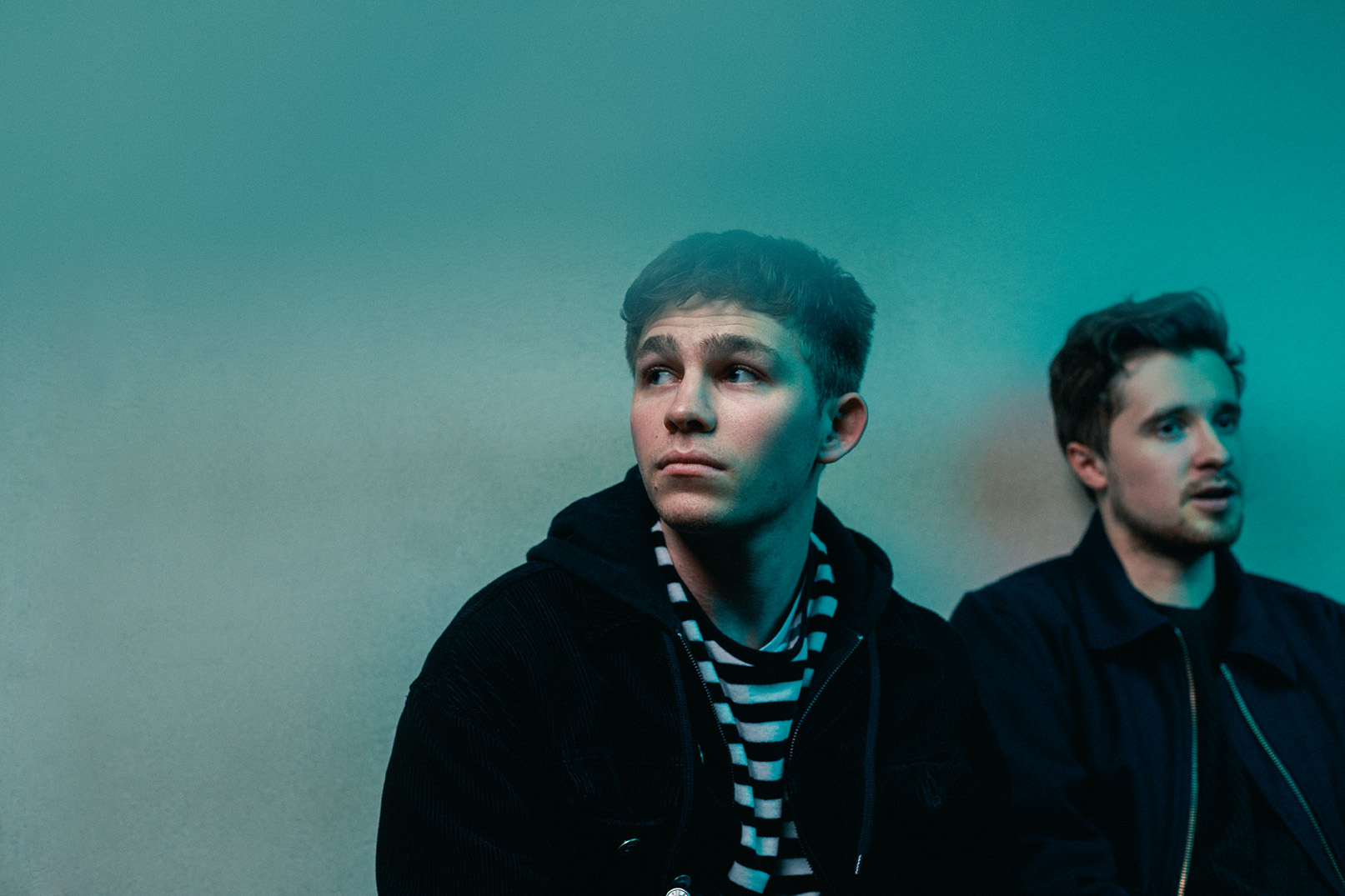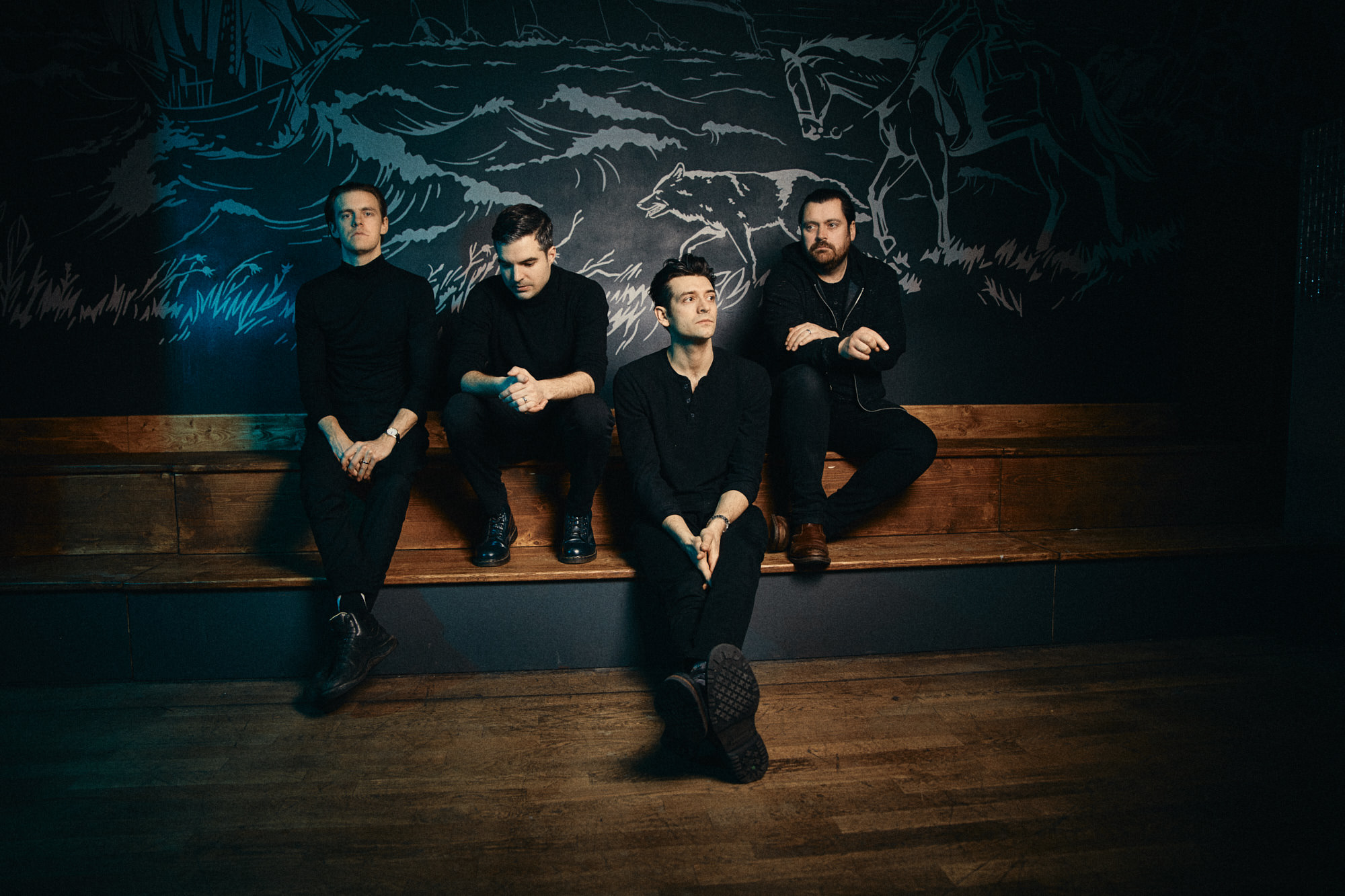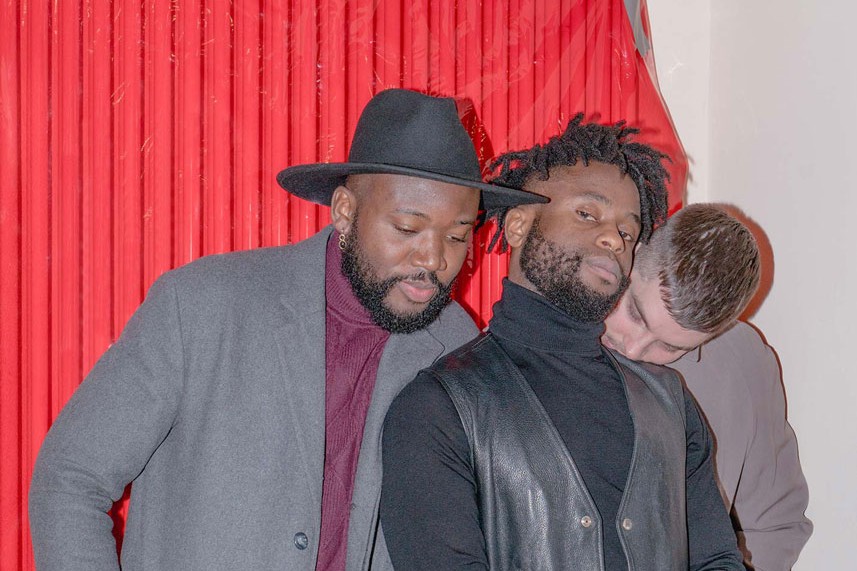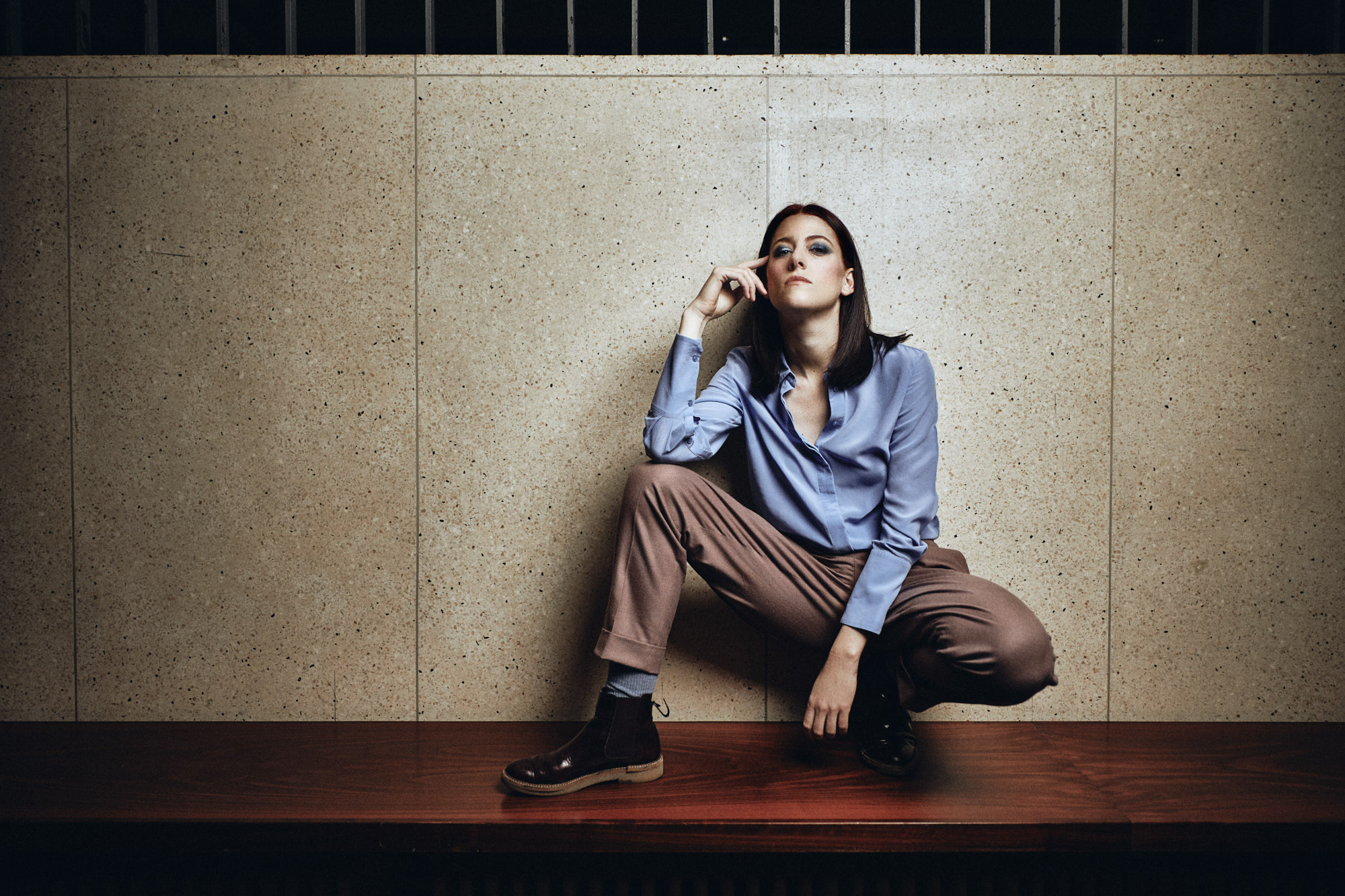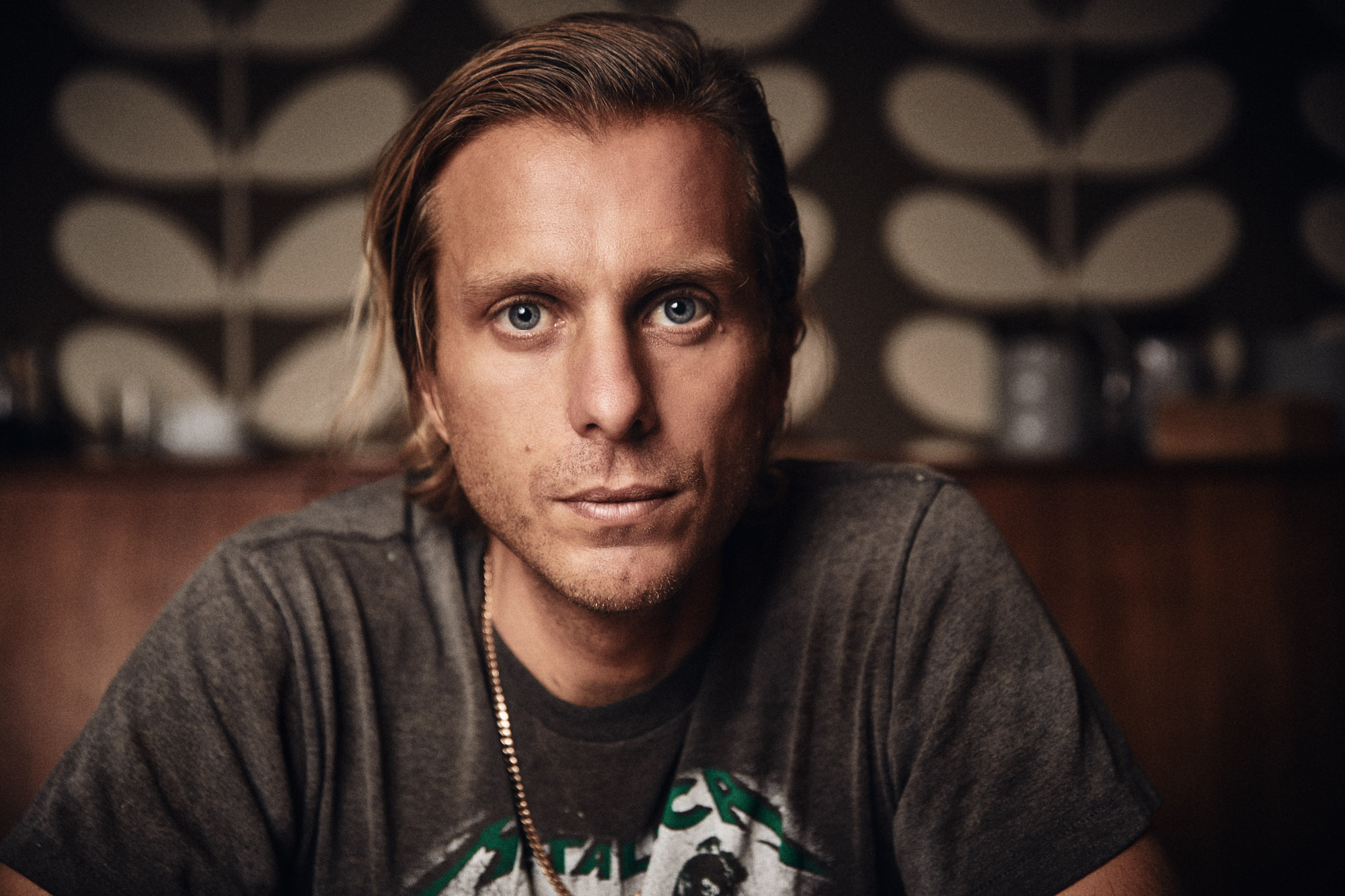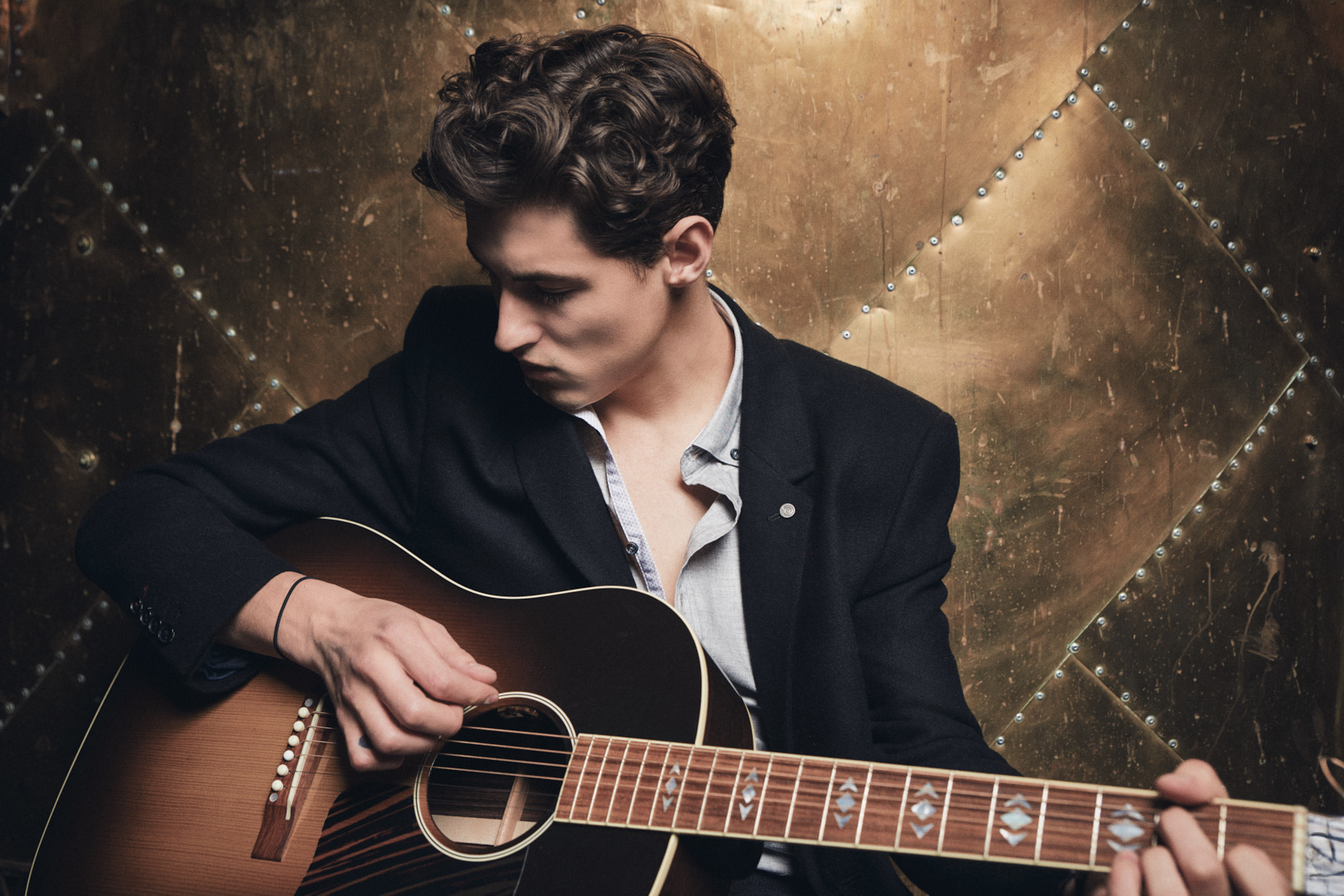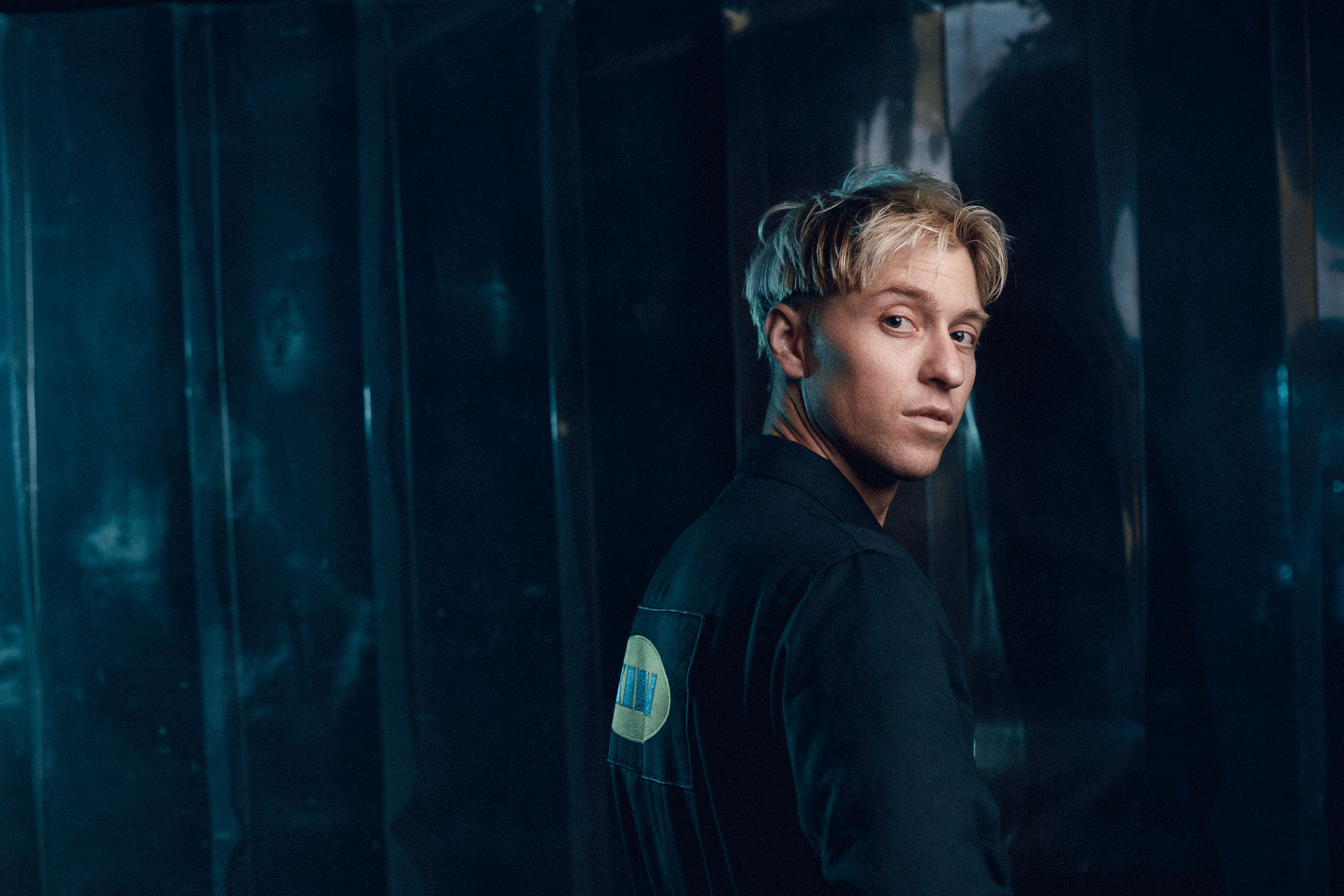Interview — RY X
»In simplicity, there’s happiness«
Australian singer-songwriter RY X grew up very simply and always wants to come back to that feeling. With his new album, “Unfurl,” he’s just released a collection of sensitive songs that bow to the overwhelming beauty he finds in nature—and in human beings.
8. März 2019 — MYP N° 24 »Tomorrow« — Interview: Jonas Meyer, Photography: Maximilian König
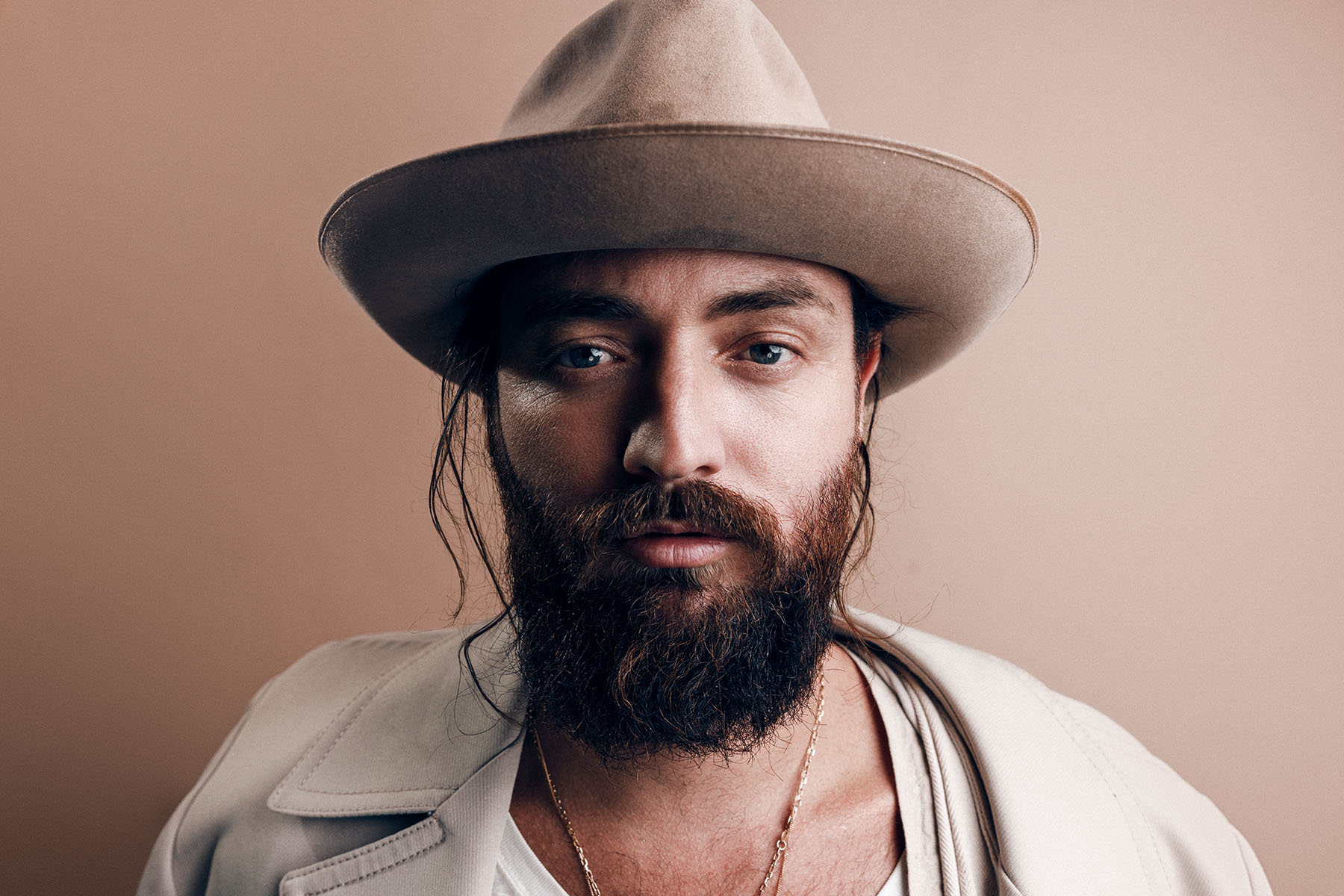
It’s a paradox: For years, it has been pulling more and more people out of the cities into nature—to relax in endless space, to escape the hustle and bustle of everyday life, and to simply take a deep breath. But when people arrive at this point, they whip out their smartphones to share what they’ve just experienced with the world. Can you really be offline when you’re online?
The Australian singer-songwriter Ry Cuming, better known as RY X, is also drawn to the loneliness of nature: to the sea, to the forest, to the mountains. Despite this, even he finds it difficult to keep his hands off his smartphone, as he will confess in the course of our interview.
Ry grew up in the area around Byron Bay on the east coast of Australia, which is undoubtedly one of the most beautiful places in the world. At 18, he threw out his education and traveled to Central America. In Costa Rica, he was discovered in 2006 by a US director and brought to Los Angeles. He still lives there today—not in the city, but in the idyllic Topanga Canyon between Malibu and Santa Monica. This idyll is threatened: Giant forest fires plagued the area last year and ate their way through trees, houses, and existences. Ry will also tell of that today.
We met the artist at BMG headquarters in Berlin’s Gendarmenmarkt, where he presents his new album titled “Unfurl.” Ry was here in fall 2017 when he appeared in the Konzerthaus on the south side of the French Cathedral and was accompanied by the Berliner Kammerorchester. With a view of the Gendarmenmarkt and the Konzerthaus we start our conversation.
Jonas:
I found the following quote from you: “I grew up very simply and I think I always want to come back to that.” What do you consider as too much in today’s world? What is it that bothers you the most?
Ry:
I just think we’re more and more chasing the ideas of something—let it be money or success—that is actually moving us further away from what makes us truly happy. I grew up on an island, we had a very simple life with no money. We picked the food from our garden and went to the ocean every day. In simplicity, there’s happiness, and so often we chase everything but that. Sometimes it’s just important that we remember that and shift our lives to come back to just a little more balance, to a little more harmony.
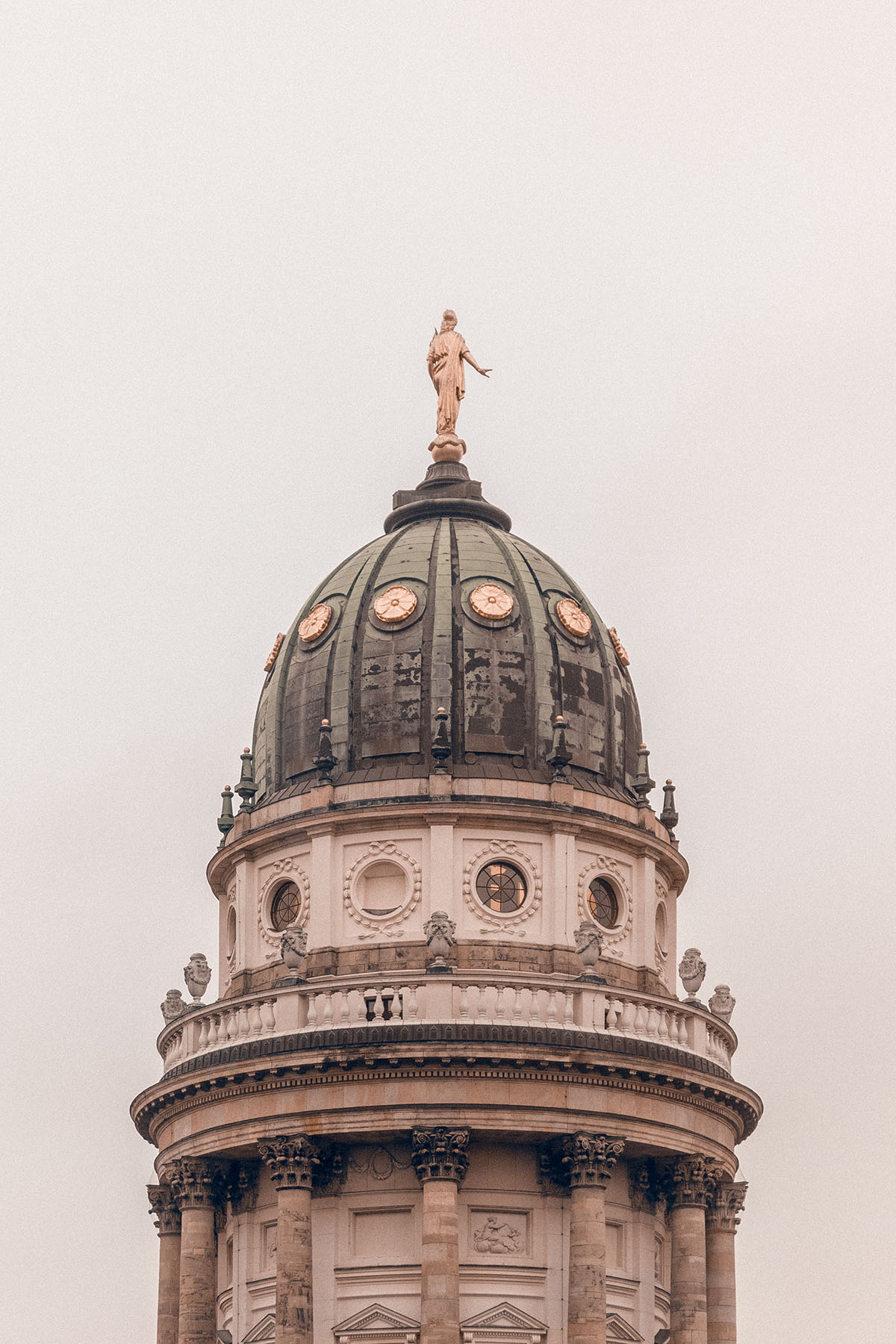
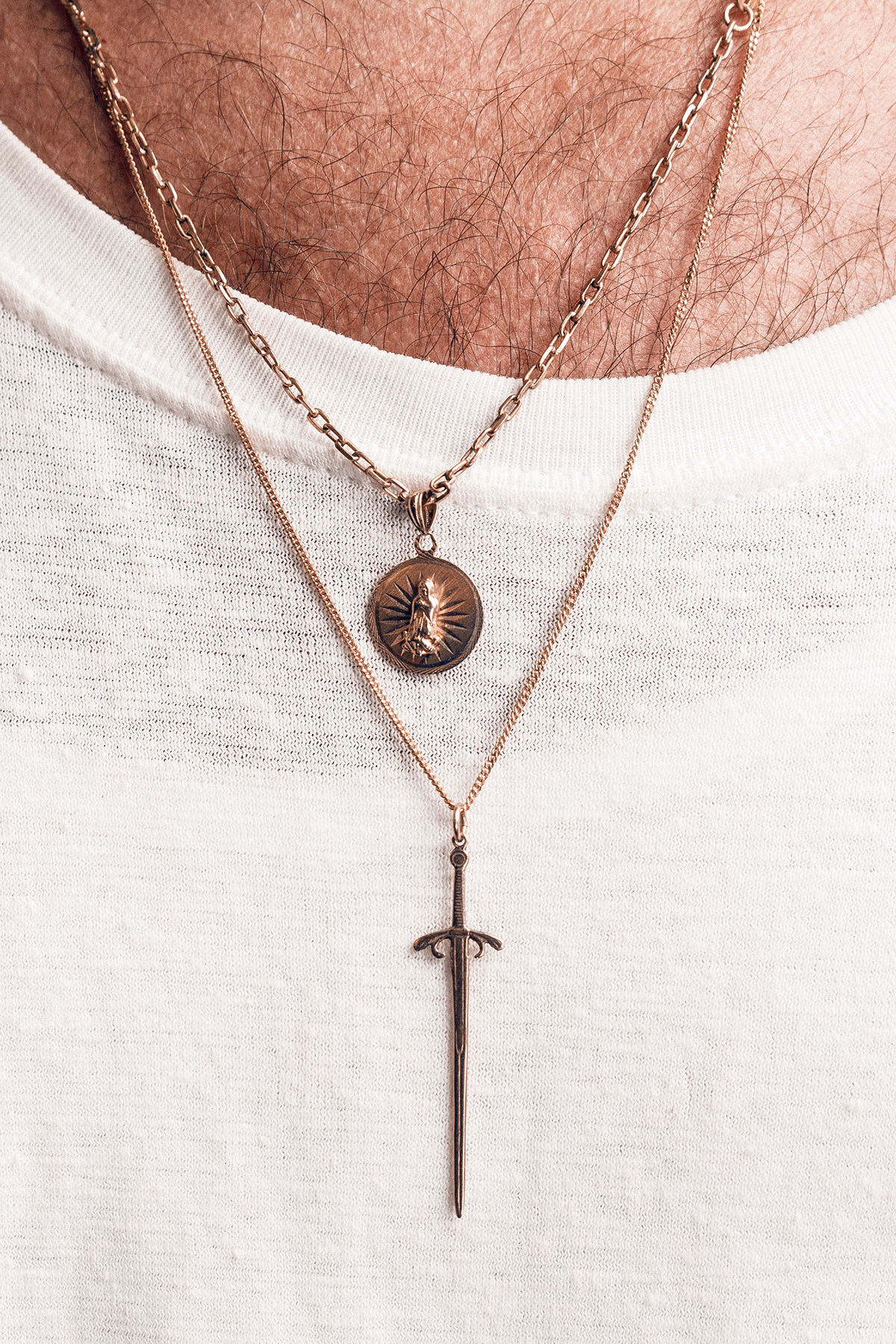
Jonas:
You moved to LA quite a while ago, a place where you can have too much of everything: sun, traffic, money, dreams, poverty, concrete. But not many people know that you can find wonderful landscapes surrounding the city of Los Angeles: Topanga Canyon, for example, where you live. What does this place mean to you?
Ry:
I live in a beautiful little property five minutes from the ocean where I have my house, a little guest house and an old Airstream caravan that I converted into a recording studio. I can run to the ocean every morning, I can hike up into the mountains where I don’t see anybody for days. Being outside and having that spaciousness is so crucial to my heart and my spirit, and then being able to go down into the city where you can see an amazing art show, go to your friends’ dance performance, go see other music that’s inspiring and connecting with people that create amazing things, that’s a perfect balance for me. I mean, I could go to a remote place in Iceland to make an album, but I couldn’t live there full-time. It’s really about the balance for me, and having that in California is amazing because you can run to the snow, you can run into the mountains, you can go to Mexico, you can drive up north—you can run away from the cities whenever you want. A lot of people think that LA is just LA, but for me, it’s just a hop, a place to come back to and to rest as long as you need.
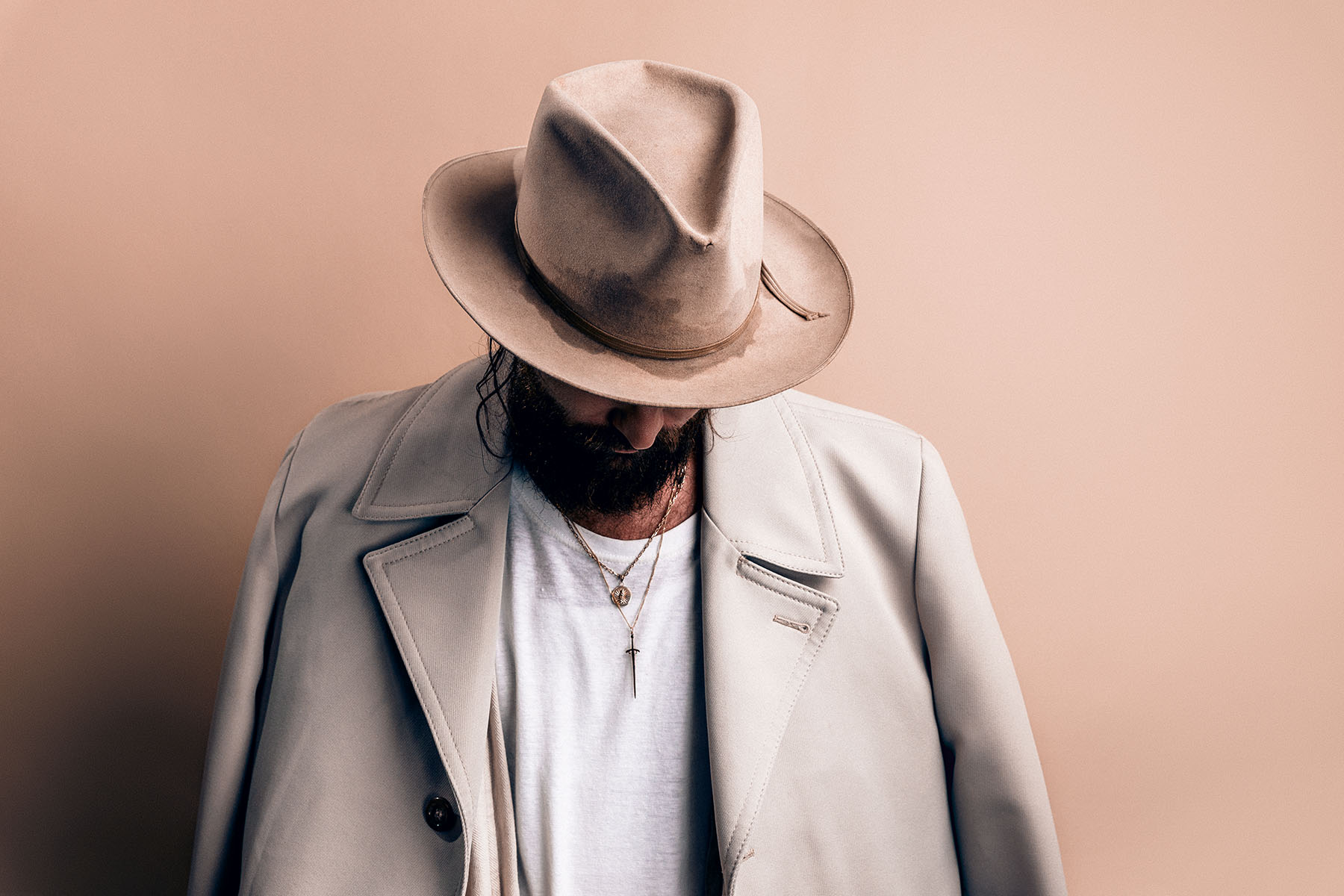
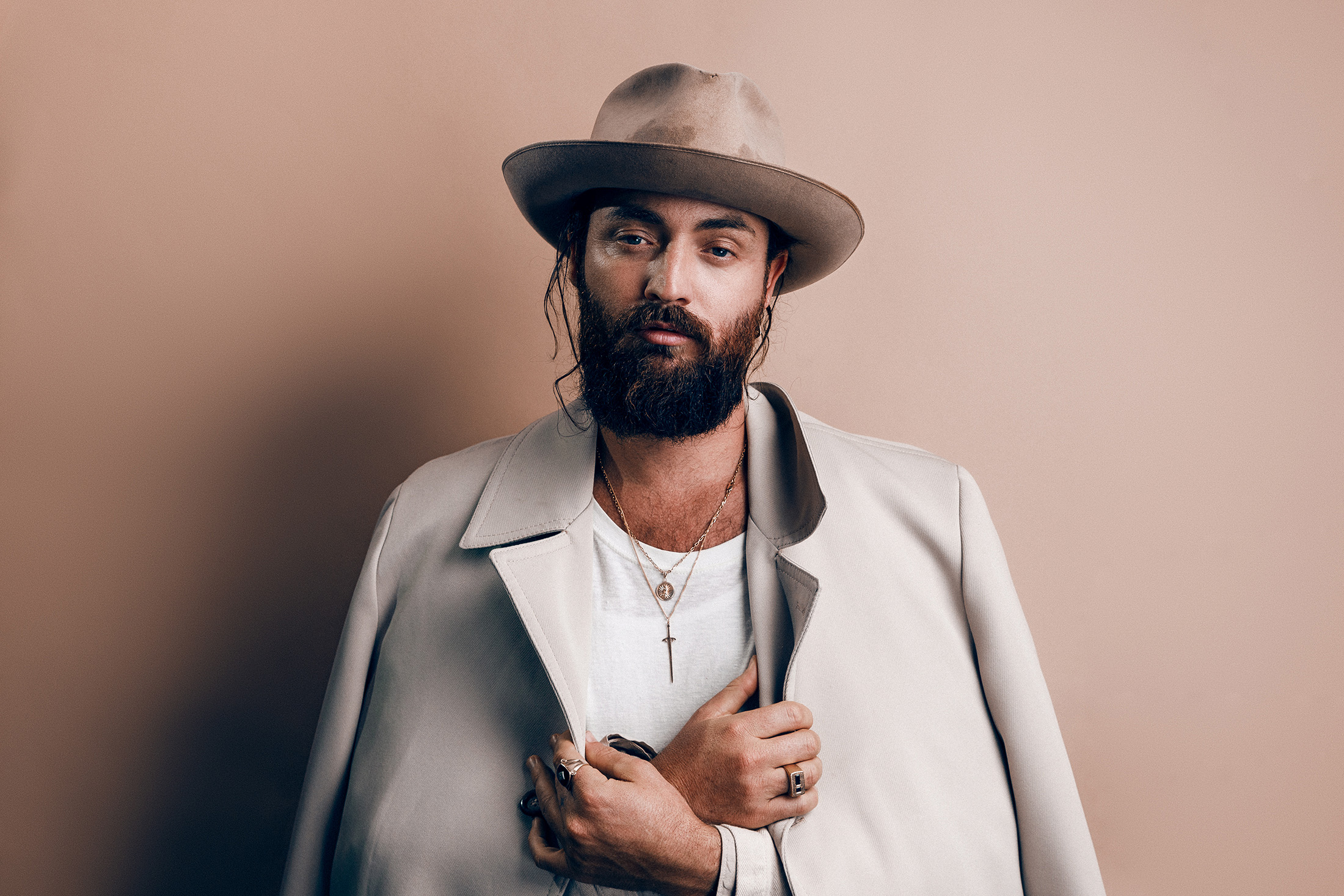
»Each song on my new record is kind of represented by a different form of the feminine.«
Jonas:
In the last months, you released a couple of music videos for some songs on your new record, Unfurl. In these videos we can see a woman in a landscape, totally standing still. The only thing that is moving is the fabric of a big scarf that she’s wrapped in, it’s just constantly flapping in the wind. Why did you create this strong visual element? Are there often moments in your own life when you go out into nature to just stand still and watch the scenery?
Ry:
Yeah, definitely. I try to do it almost every day in some way to get to come back to a level of groundedness in myself and to get perspective on what’s really important. I also go to the ocean almost every day and surf or sometimes just sit and watch. I try to take those moments as much as I can.
I also had the idea of a very strong feminine presence in these videos, a presence that is embodied by a woman that is not known as she’s covered. Her stillness within the movement expresses the finite balance in the beauty of watching something like that instead of seeing the cover on YouTube. With that, I created a visual language that is able to show that each song on my new record is kind of represented by a different form of the feminine. It was very beautiful to explore these visuals along with my music.
Jonas:
For me, watching these videos and listening to your music feels like sitting in front of a fireside and focusing on the waving flames. It’s almost like meditation—but that’s the perspective of someone from your audience. How does your music affect you, the creator of it? Or does it even affect you?
Ry:
If I’m not affected, I won’t put it out. There has to be some kind of heart thread in it, there has to be something that speaks to me, and if it doesn’t, it’s probably not going to speak to other people. I write so much, there’s probably another 20 or 30 songs that aren’t on the album, but that are equally as important to me in different ways when I feel them. If I don’t feel a track, it doesn’t end up getting made, there has to be that visceral connection between me and you.
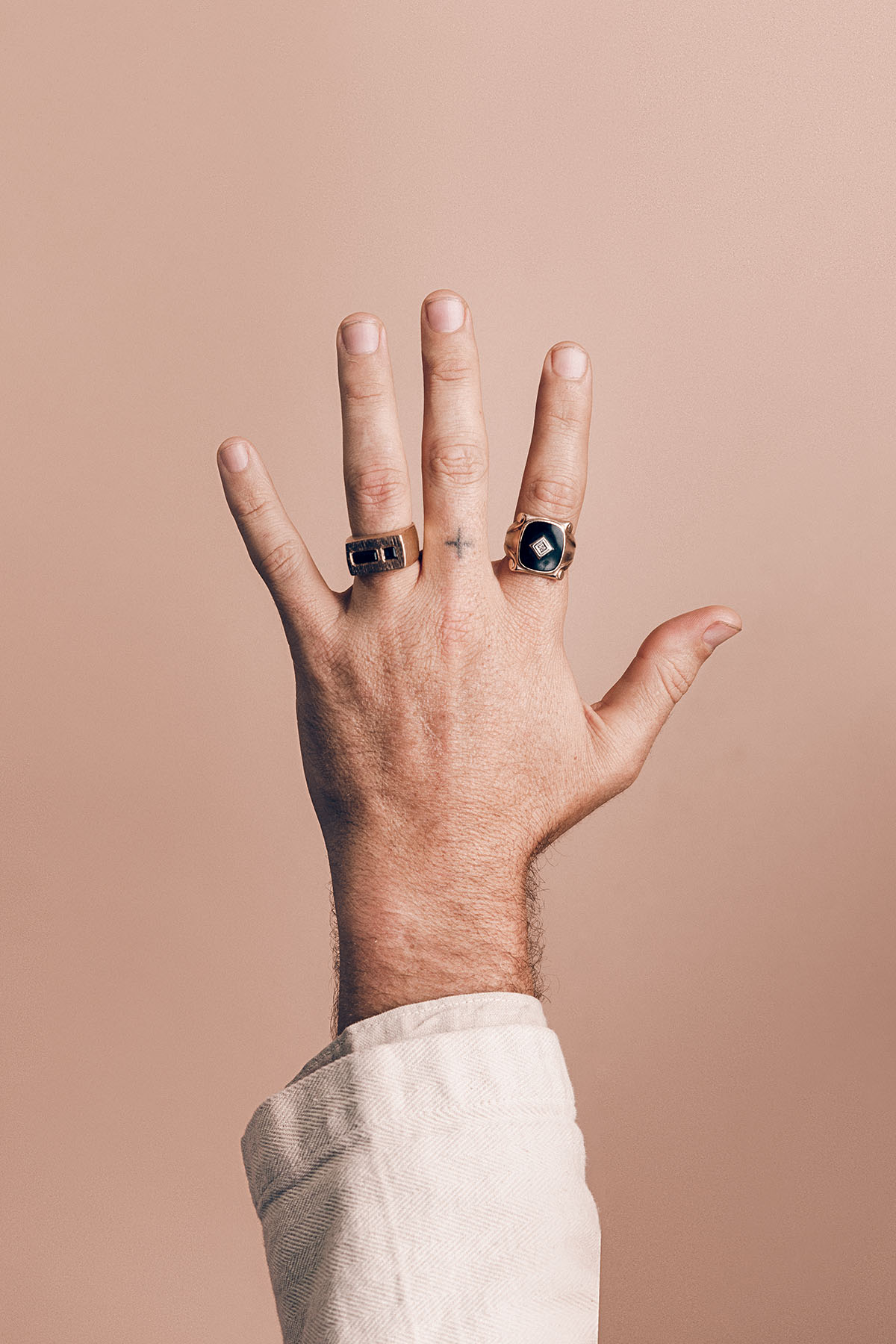
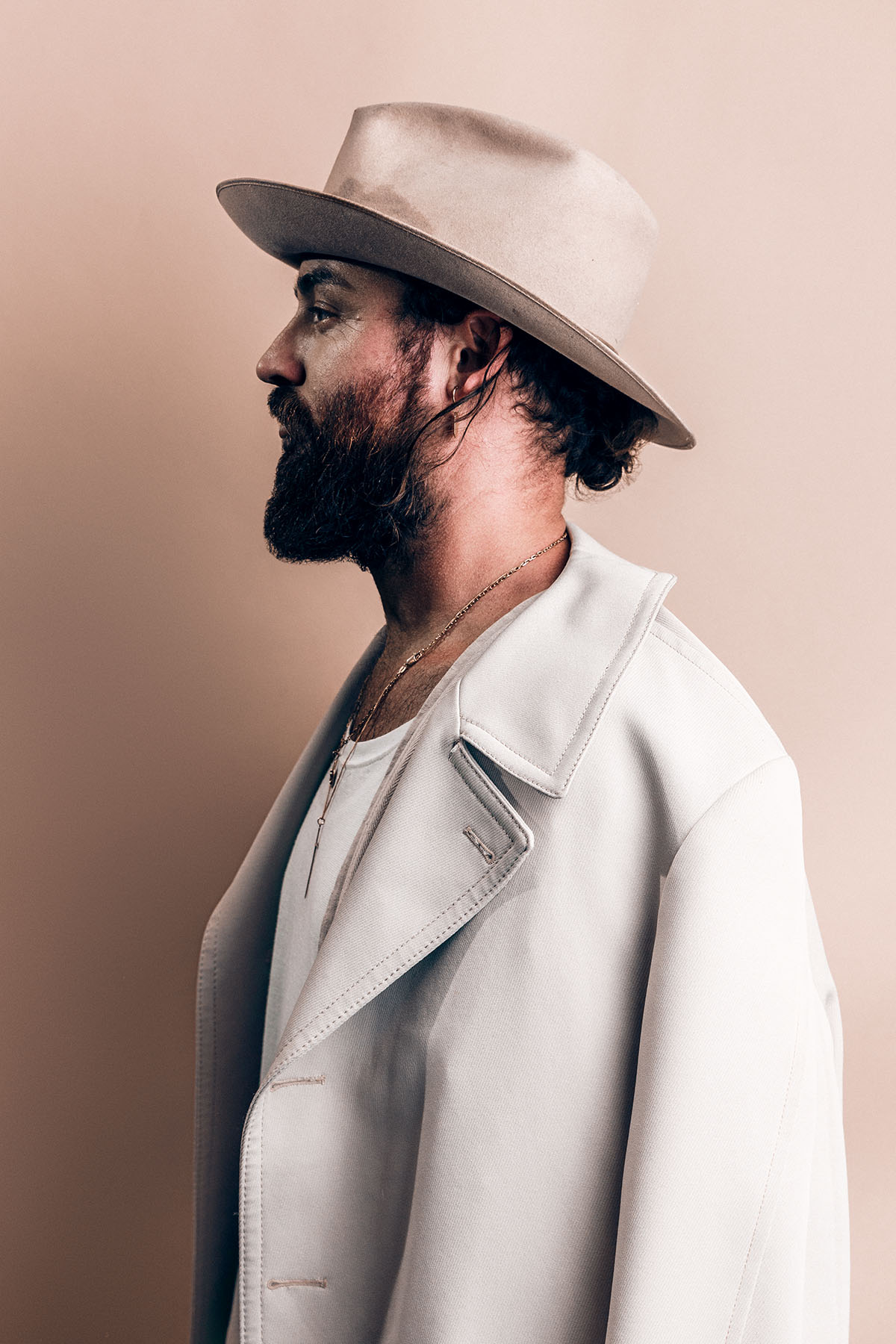
Jonas:
You recorded most of your new record’s songs in an old studio in East LA, using—almost exclusively—analog equipment. What artistic value has this setting added to your music? What’s the power of analog music in a digital-addicted world?
Ry:
It’s just a beautiful thing to focus on listening as opposed to always improving. For me, it’s a really simple question, it’s “How does this feel?” rather than “How does it sound perfect?” or “How does it look perfect?” When we recorded the album, a lot of the time was about getting special characters in these sounds. We mainly focused on the energy rather than the perfect performance or sound quality. I mean, yes, that became amazing, too, but it was so much more about “Do I feel this really connected to it?” or “Do I feel like I’m having a response with this?”
I just genuinely find that when I look at a photograph like this, for example (Ry points to the cover of his new record). The cover of the new album is taken on an old film camera. I feel more drawn to that photo than I do to a digital one, I feel more connected to it. So, I just try to relate to it that way. And I use that a lot, all through the visual and the sonic process. It’s not about being digital versus analog, it’s really just an intuitive response that, when I record that way, it seems to be more emotional for me and to have more connection in it.
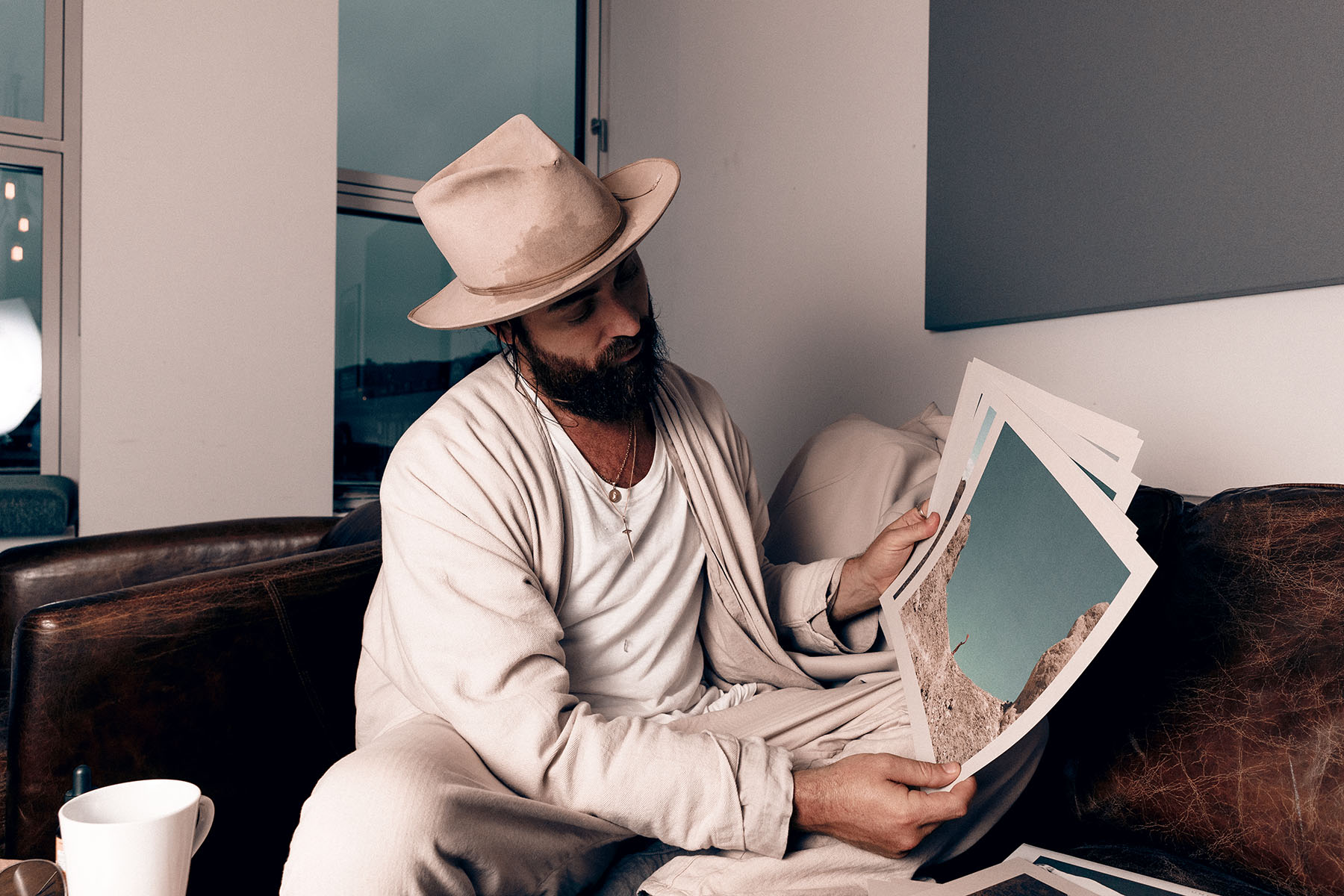
»Technology doesn't help me understand who I am as a person.«
Jonas:
For a couple of years now, we’ve been seeing that people are increasingly going into nature and spending more and more time there. Nature has become a big part of their lifestyle. What do you think is the reason for that?
Ry:
Because our world is getting so crazy! Just look at all of us, I’m on my phone so much during the day—for work, for communicating with people, for social media and all those things, and I’m somebody that tries to get off my phone. That’s the reason why I think more and more about the idea of how we can find reconnection. Nature is one of the most crucial ways for people to connect and get perspective. Also, it’s one of the times we feel humbled: to be in a space that is completely overwhelming, to be in the ocean, to think about how small you are, to be in the mountains, to comprehend the beauty of nature.
There’s something really crucial about our perspective of nature, even from a spiritual point of view. I try to live closer and closer to the rhythms of nature so that I can understand who I am as a person—because technology doesn’t help me understand that at all. But, technology helps me do a lot of other really cool things. You see, it’s the balance. Always the balance.
Jonas:
Did you witness the wildfires last year?
Ry:
Yes, the fire raged through the mountains. I was evacuated for about ten days from home and even that was a time to be humbled. I could have lost everything. That’s nature, that’s how powerful she is.
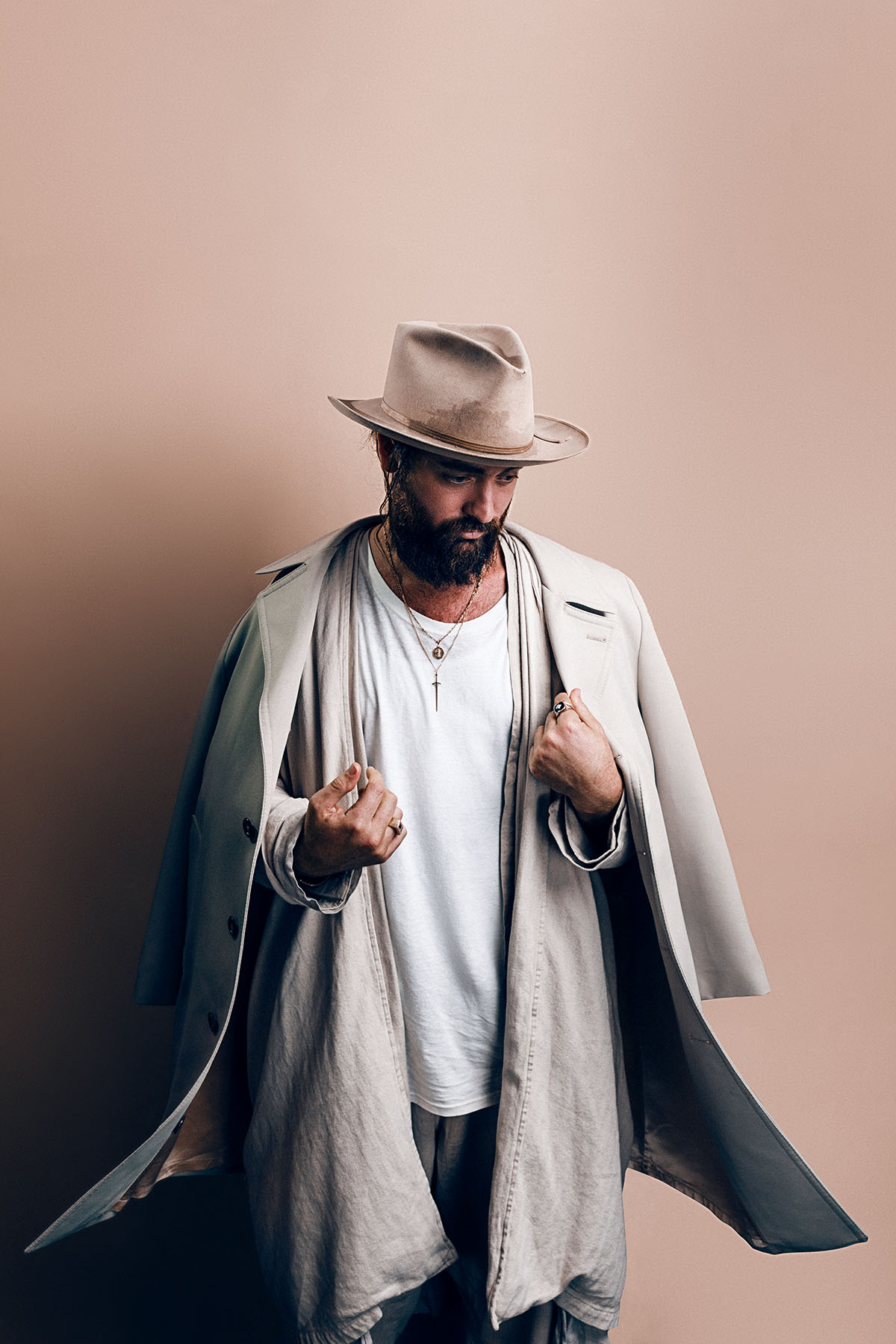
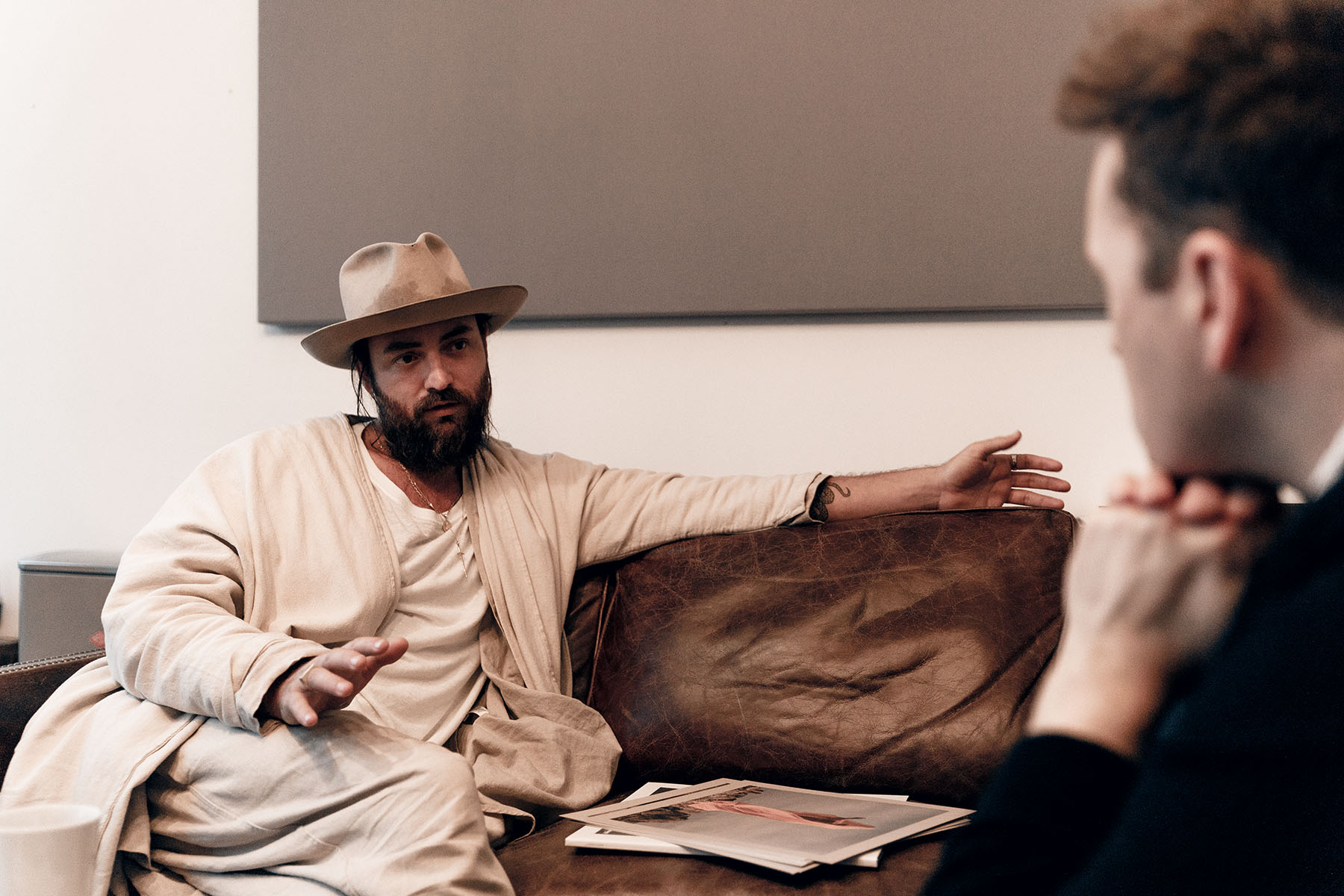
Jonas:
Last year a dream came true when you had the chance to play in the Royal Albert Hall. This year you’re going to play there again, together with the London Contemporary Orchestra. Is the presence of a classical orchestra an element that it takes to complete your music?
Ry:
For me, it’s so much about “How do I take something that I’m trying to create and that I feel is already beautiful, and make it even more beautiful?” If that’s an orchestra, then bring an orchestra. If that’s visuals, then bring visuals. If that’s a different band, then bring them. For me, it’s just a constant striving to make art at its highest level. And when orchestras—with people that perform there at the highest level, often for decades—get to come to play my music with me, that’s so humbling. And all the space which they fill, it’s the perfect way to fill the space. It’s not with more drums, it’s not with louder sounds, it’s with these incredible musicians playing this almost sacred version of classical music. For me, that combination is very, very special and I really wanted to continue to explore that and open up new ways to explore myself as an artist as well.
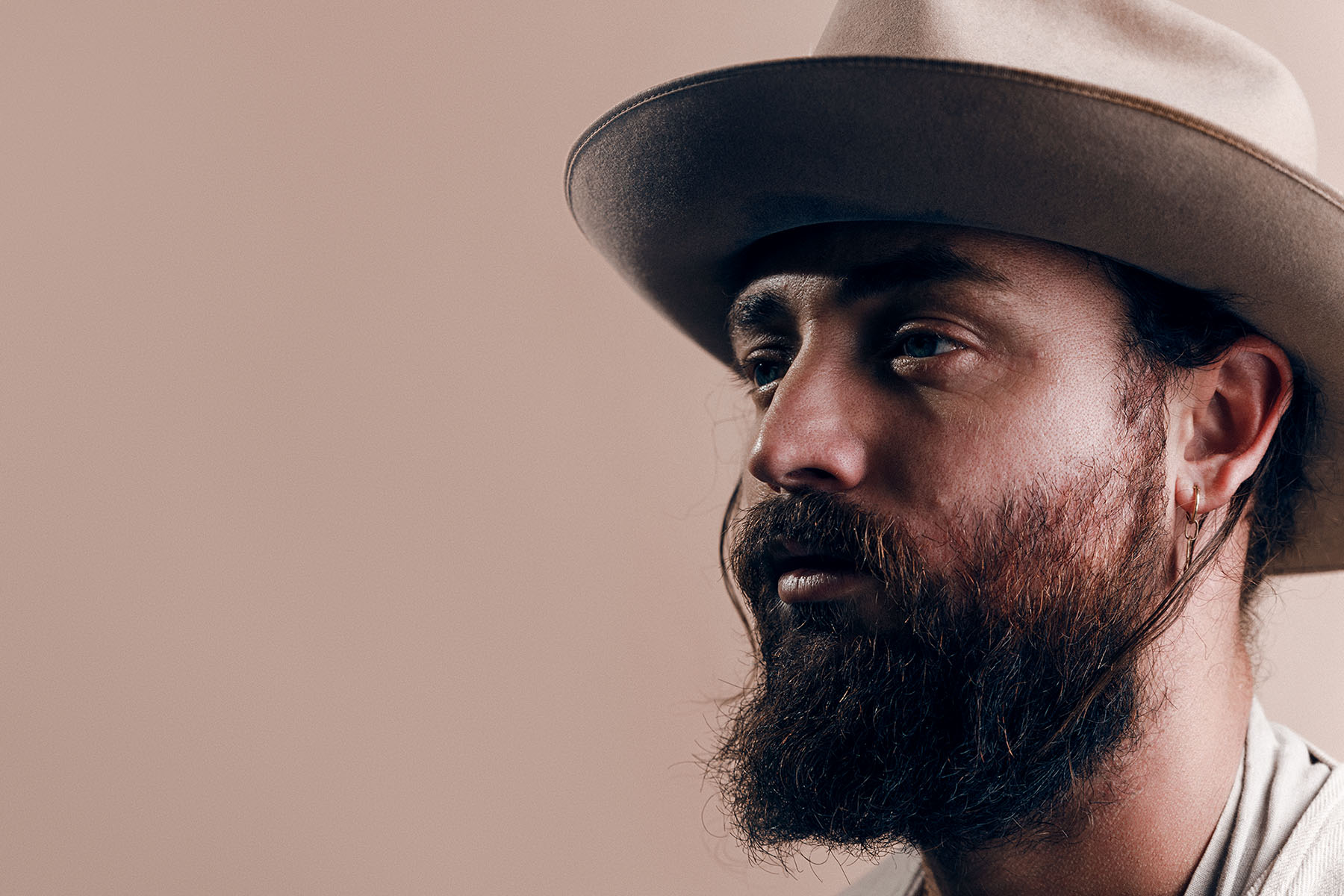
»Art will go downhill when we stop dreaming.«
Jonas:
Playing at the Royal Albert Hall was a dream that came true. Are there any dreams left?
Ry:
Always. I’ve had to keep dreaming because I’ve been able to achieve a lot of dreams I had. For example, I wanted to play here in Berlin’s Konzerthaus with the German Chamber Orchestra—and I did that. Then I asked: “What do we do now?” It’s almost like finding new ways to keep dreaming and keep consistently changing and shifting. I think that art will go downhill when we stop dreaming. We always have to find new dreams.
#ryx #unfurl #mypmagazine
More about RY X:
Photography by Maximilian König
maximilian-koenig.com
instagram.com/studio.maximilian.koenig
Interview by Jonas Meyer
Editing by Ben Overton
